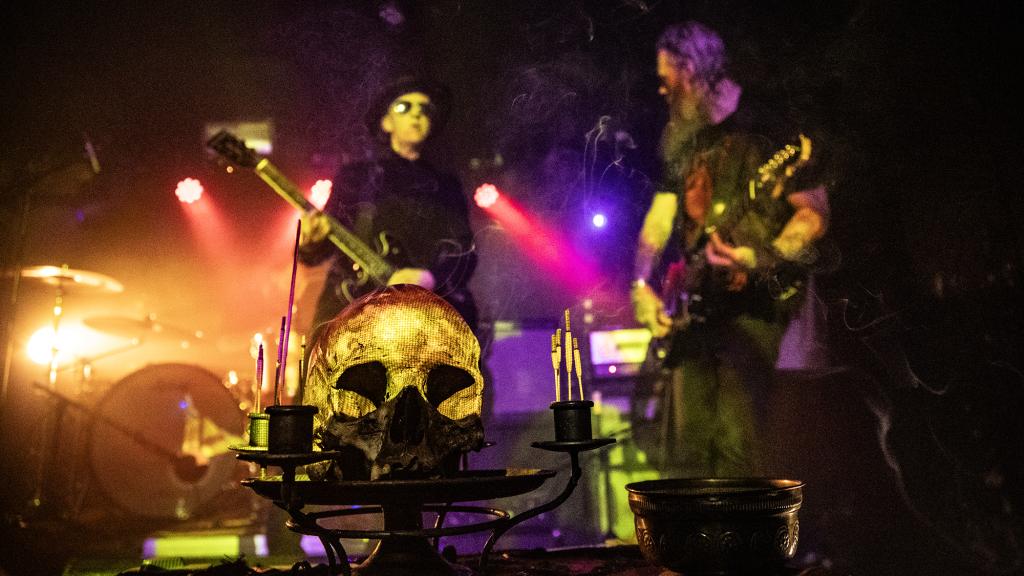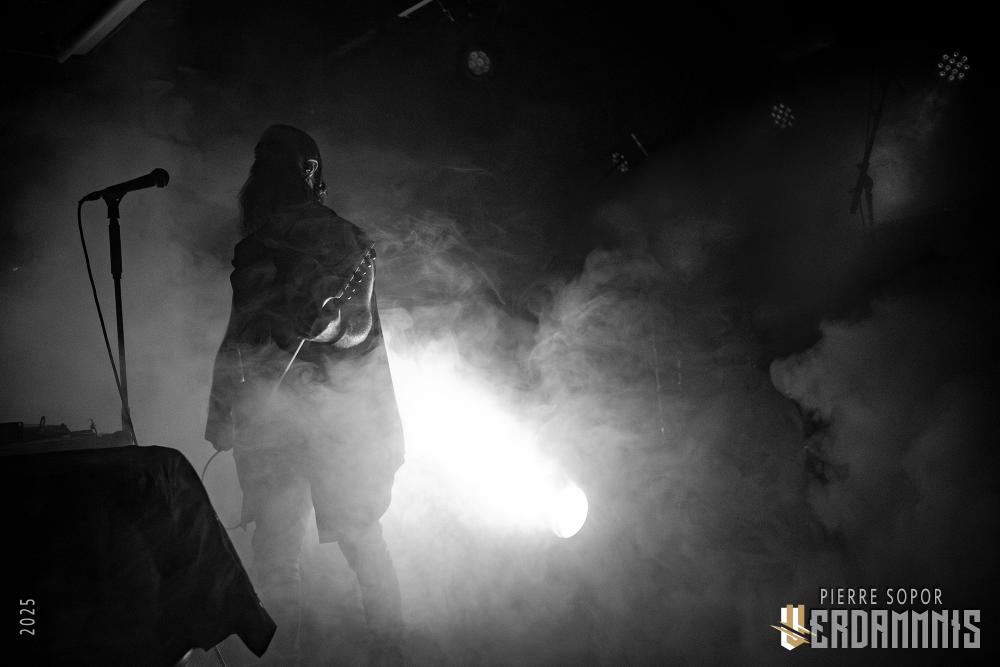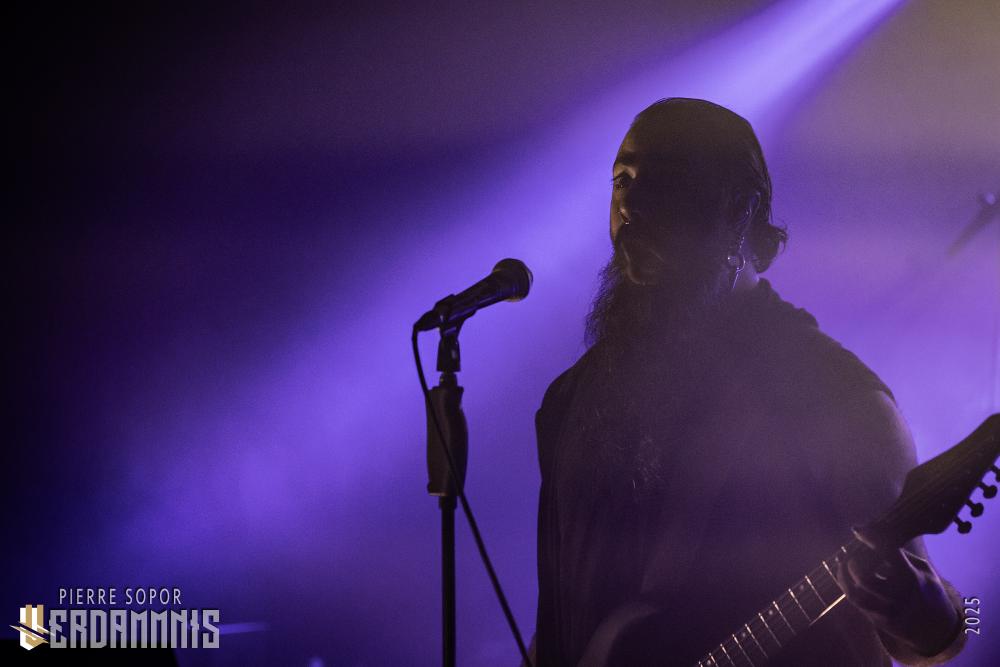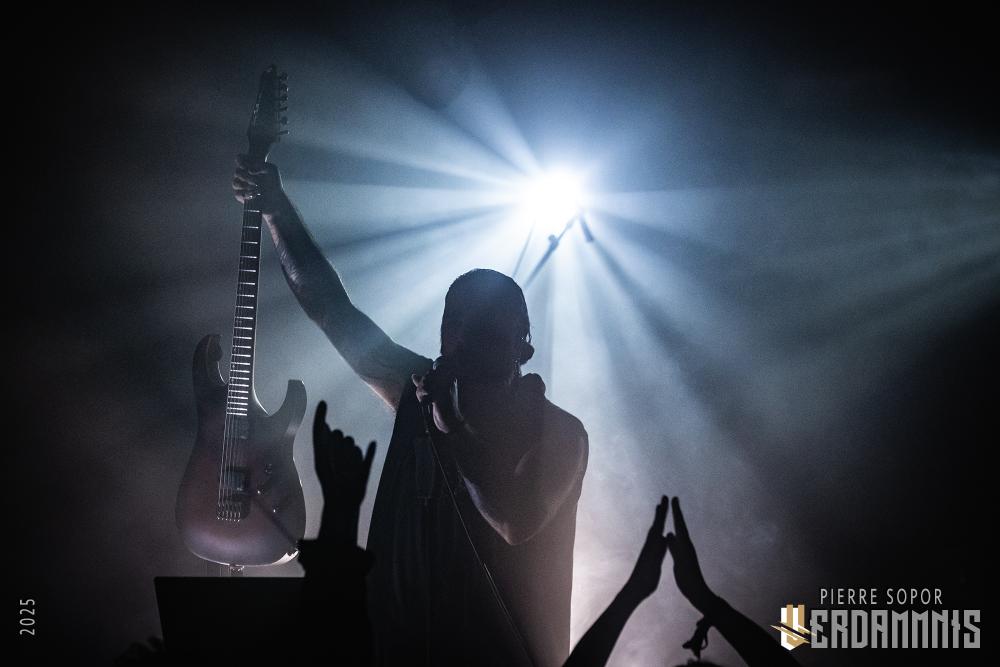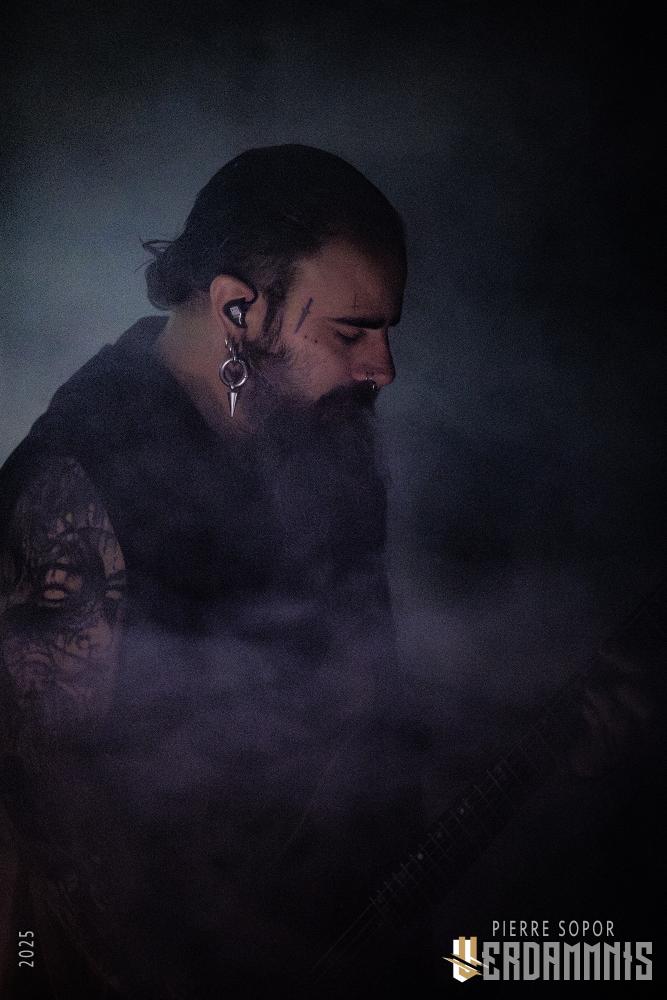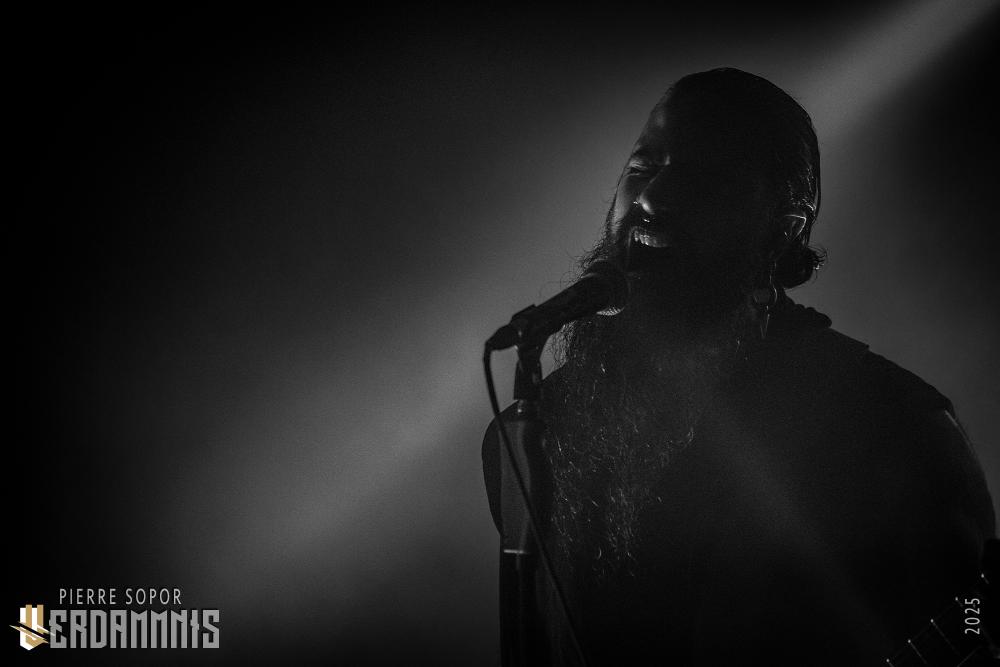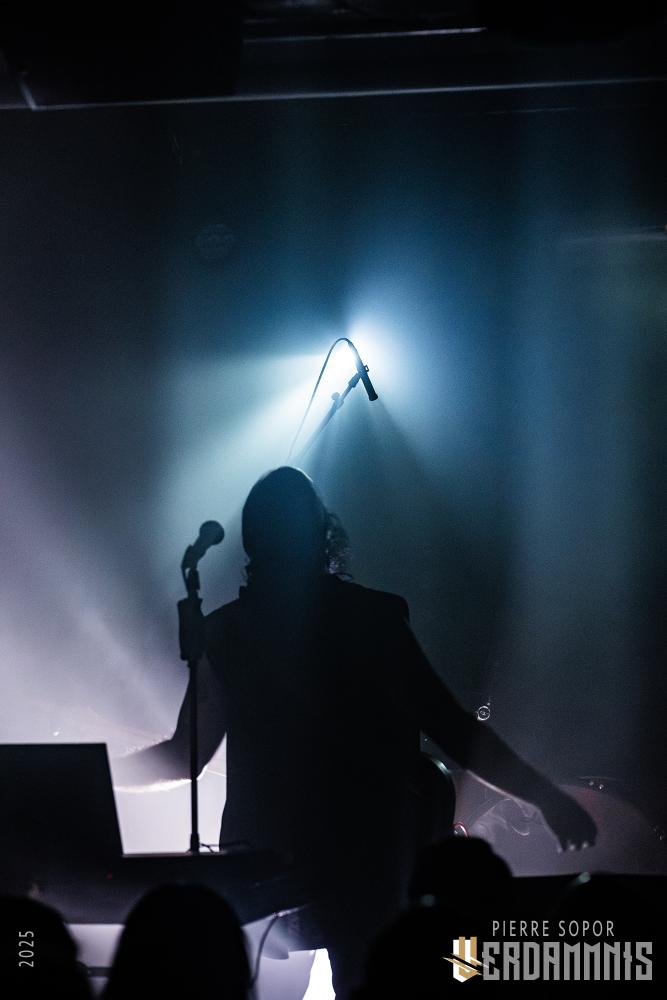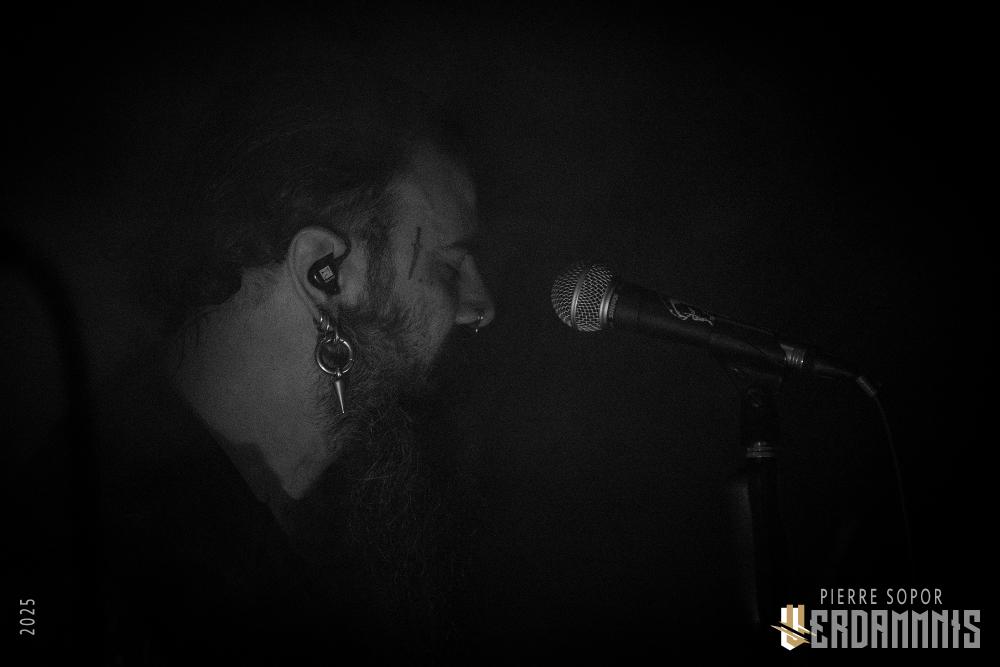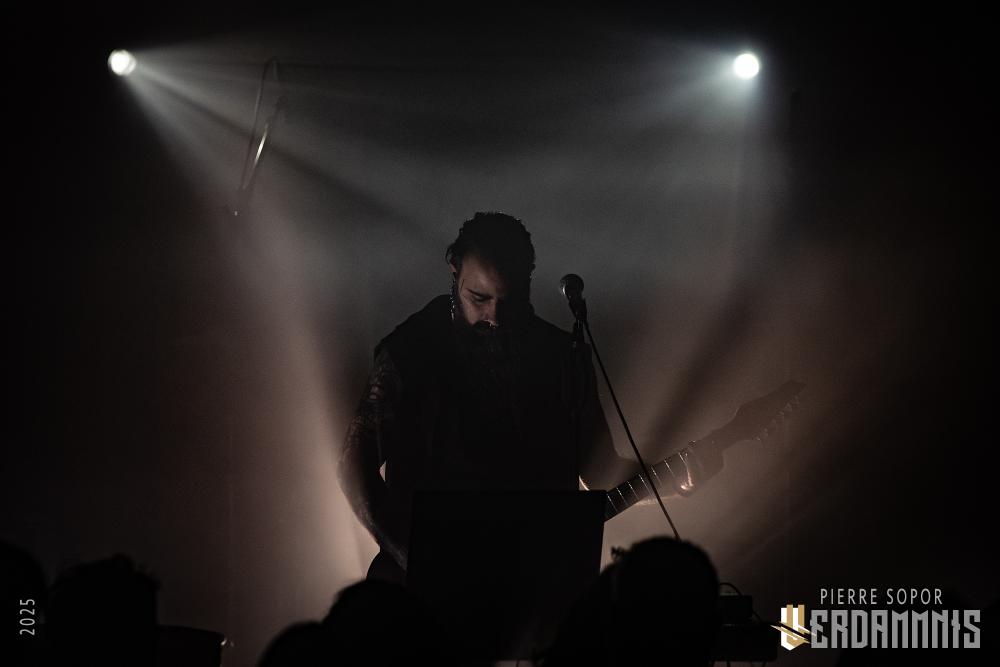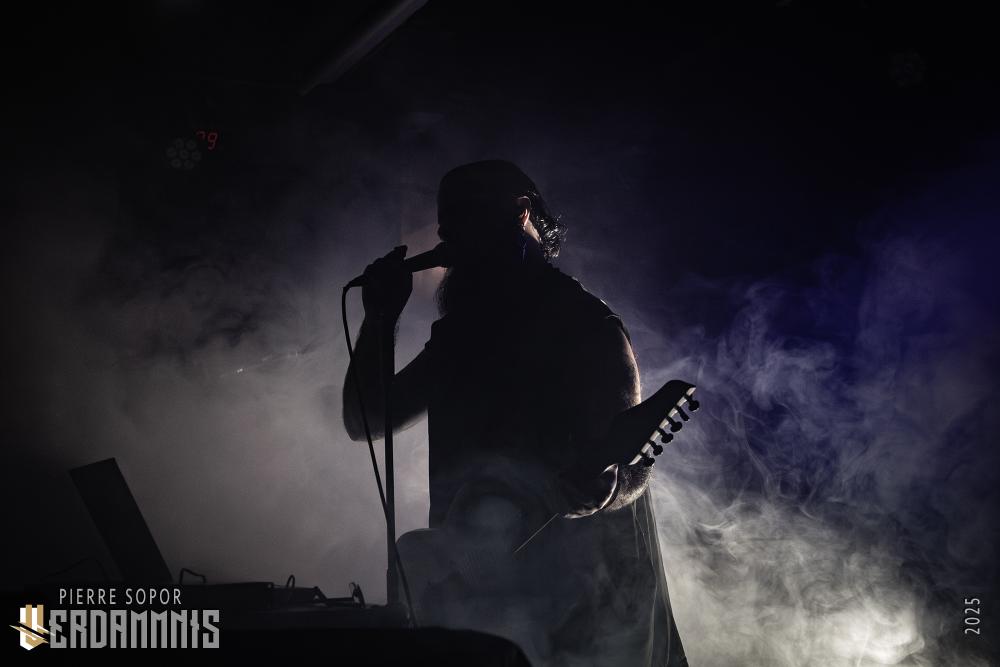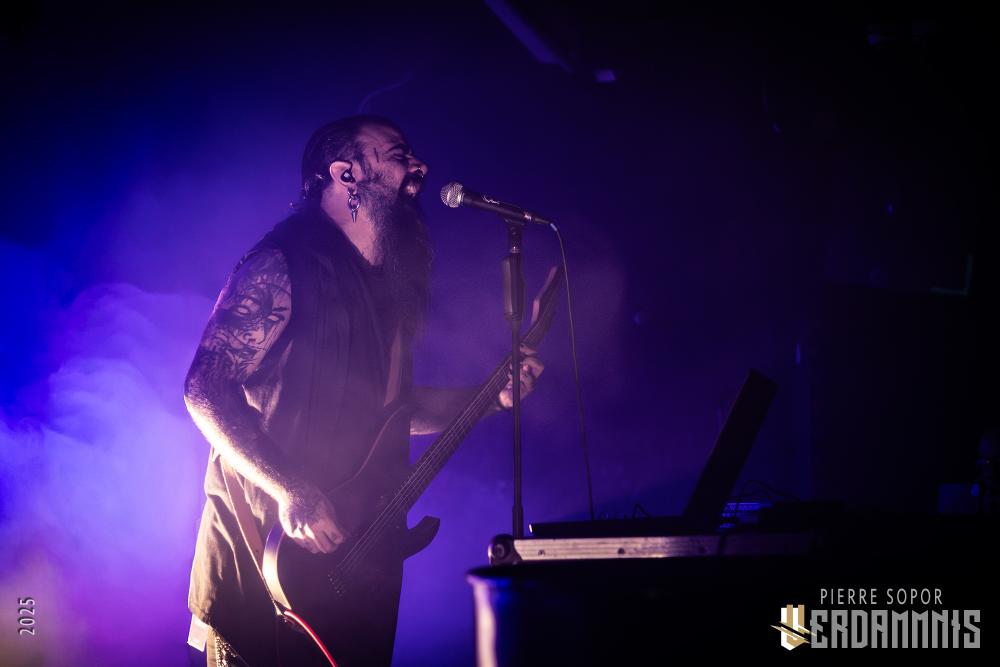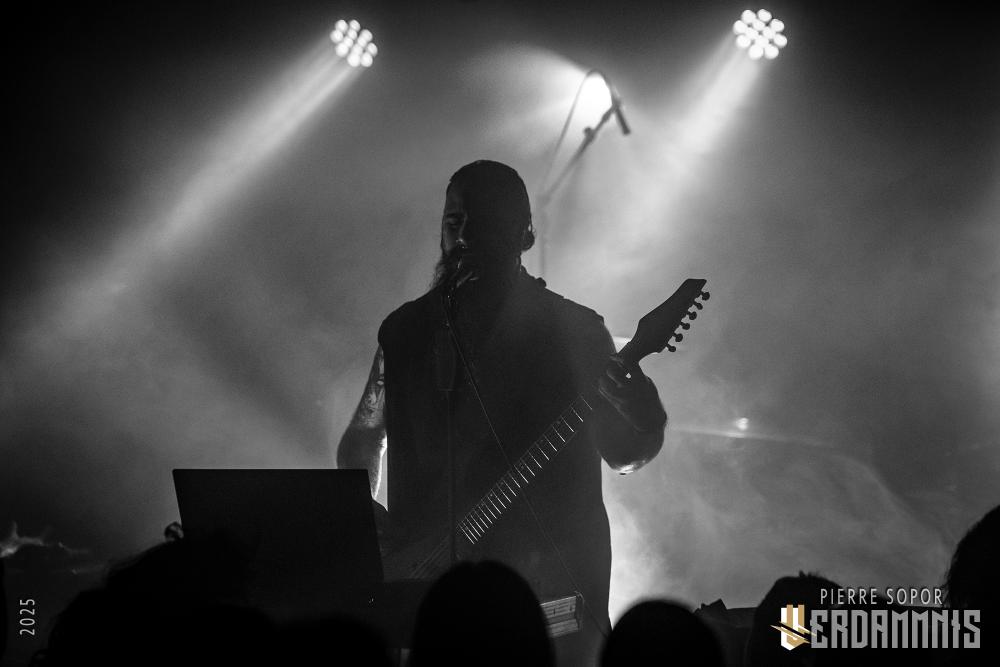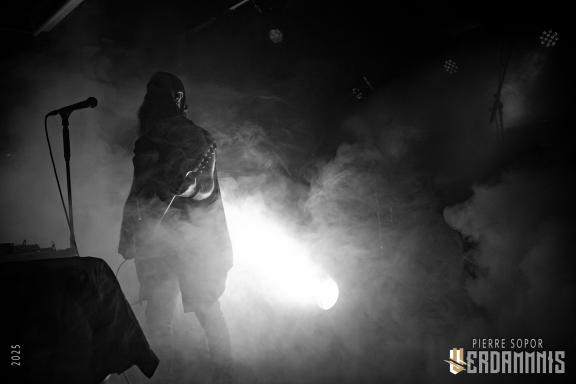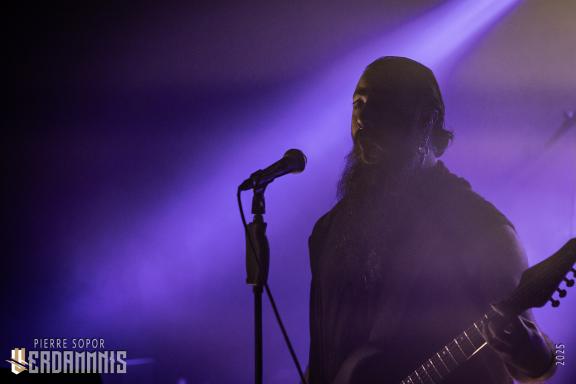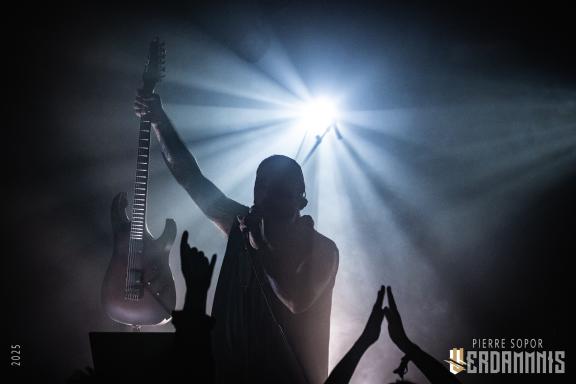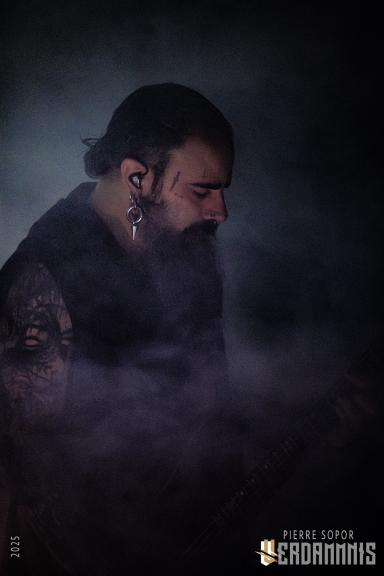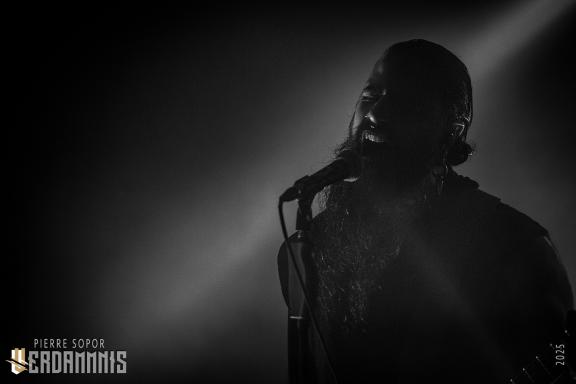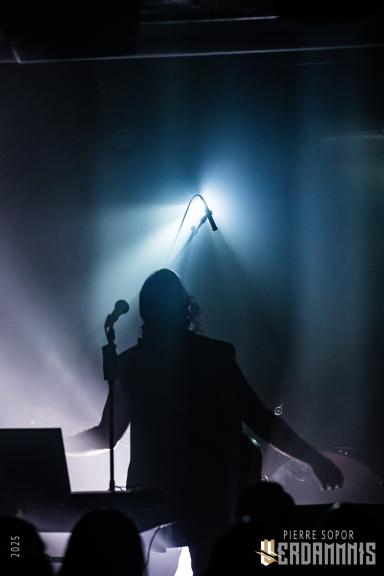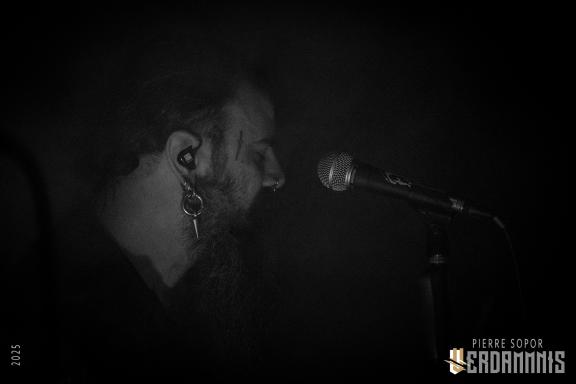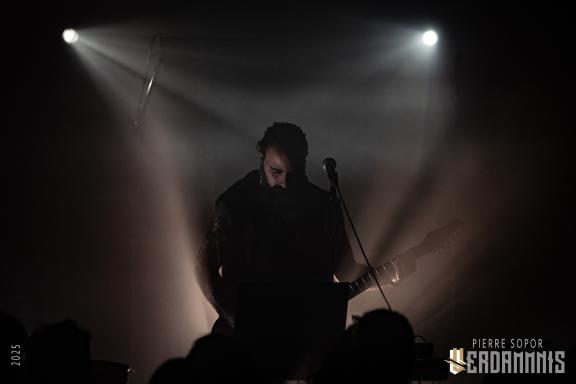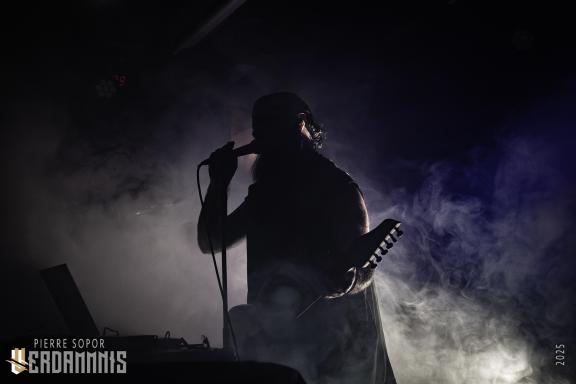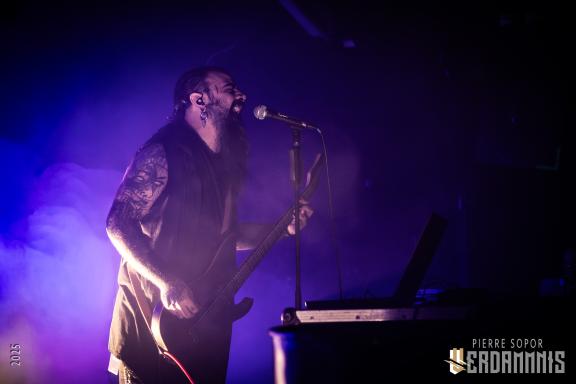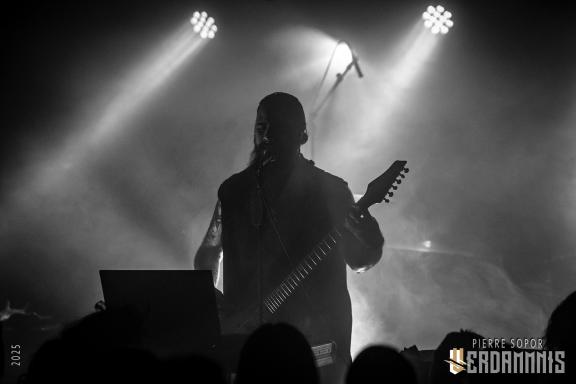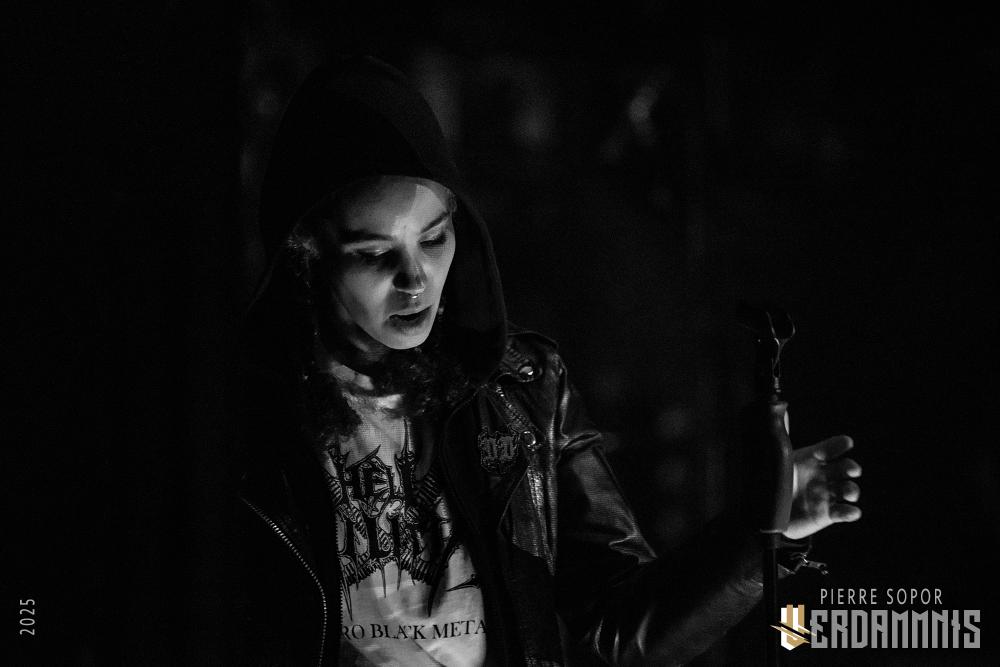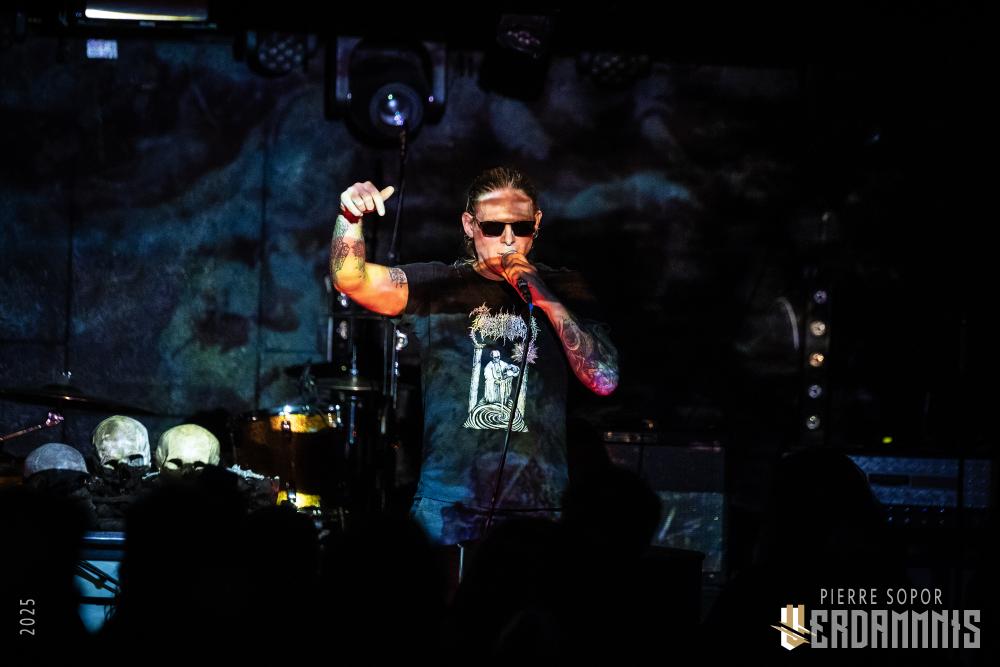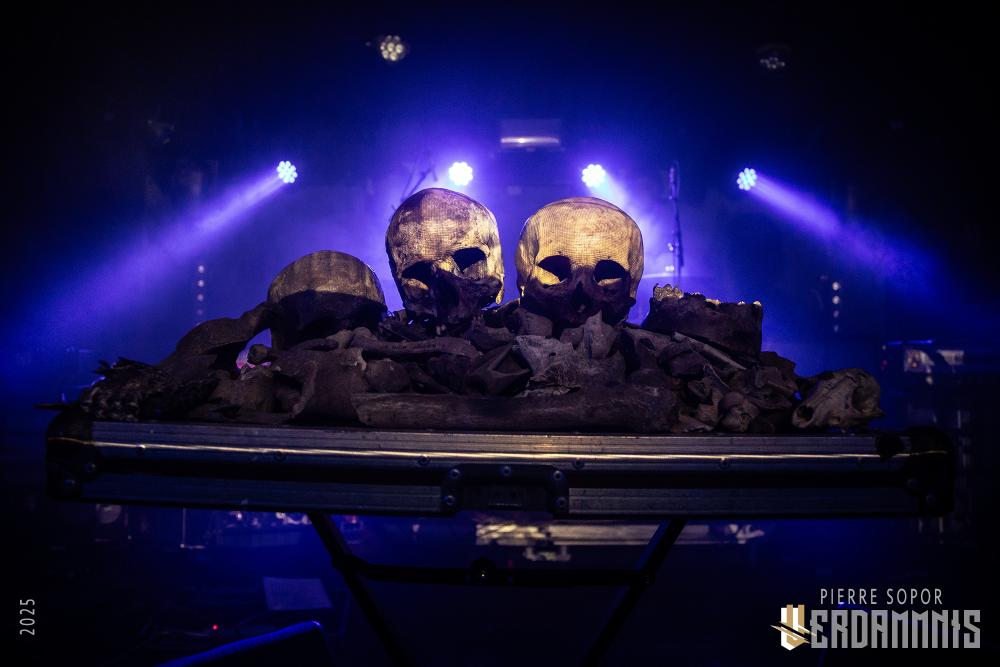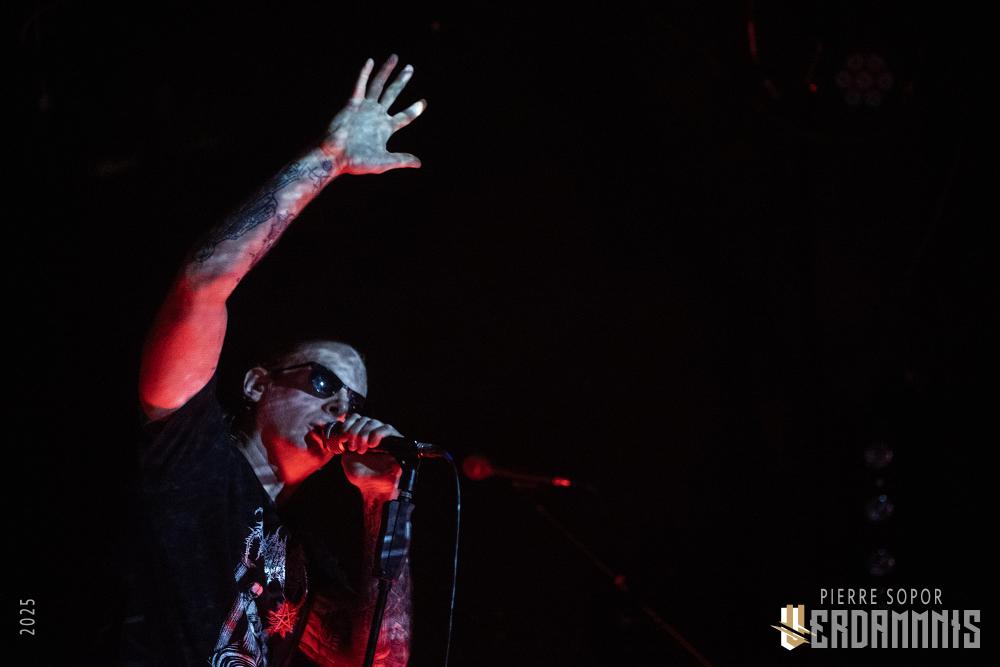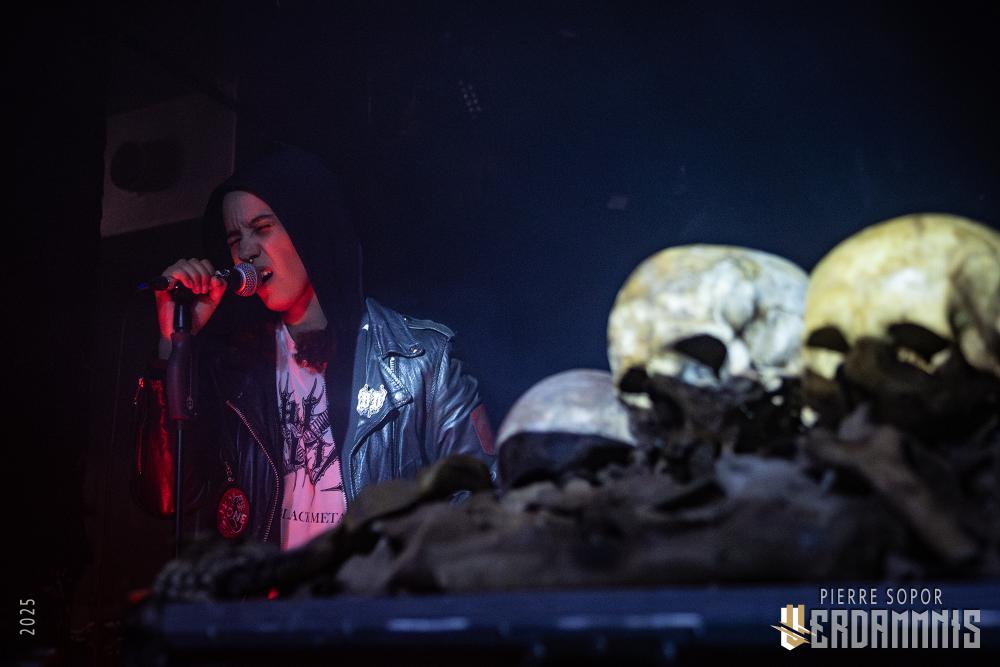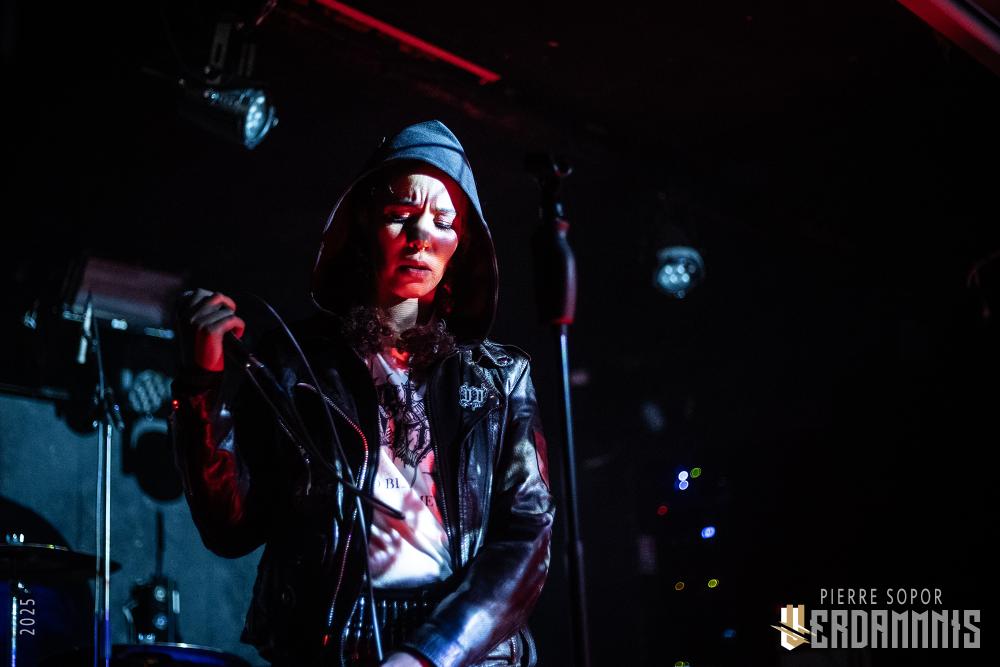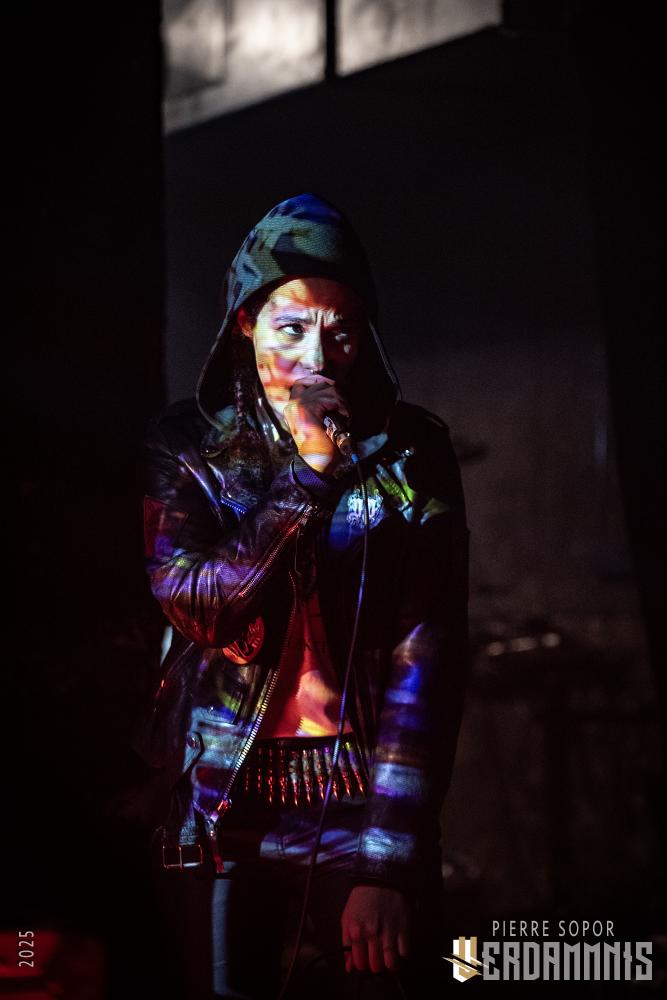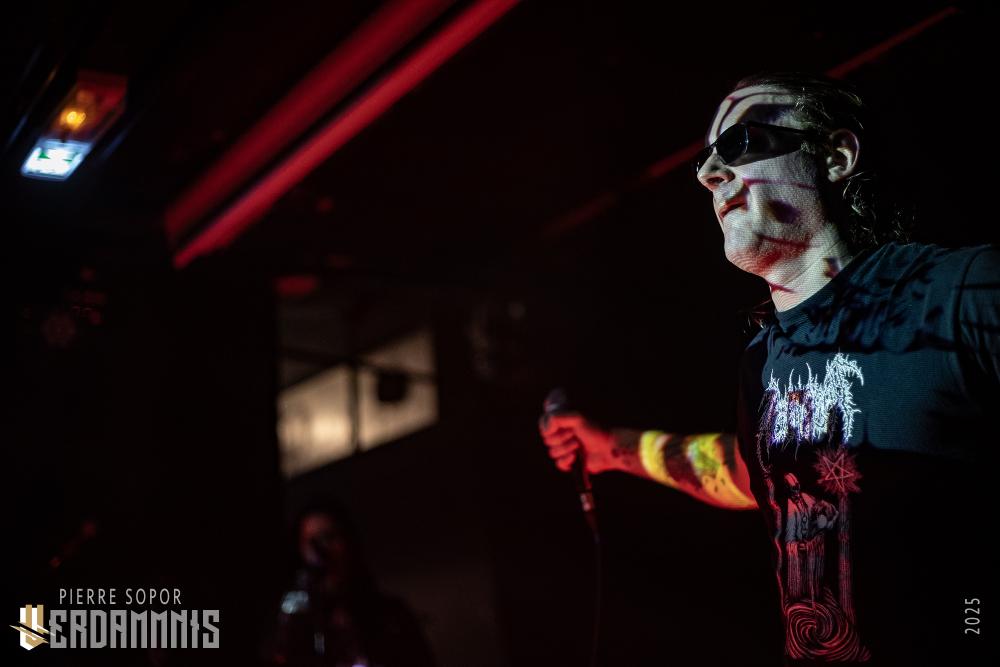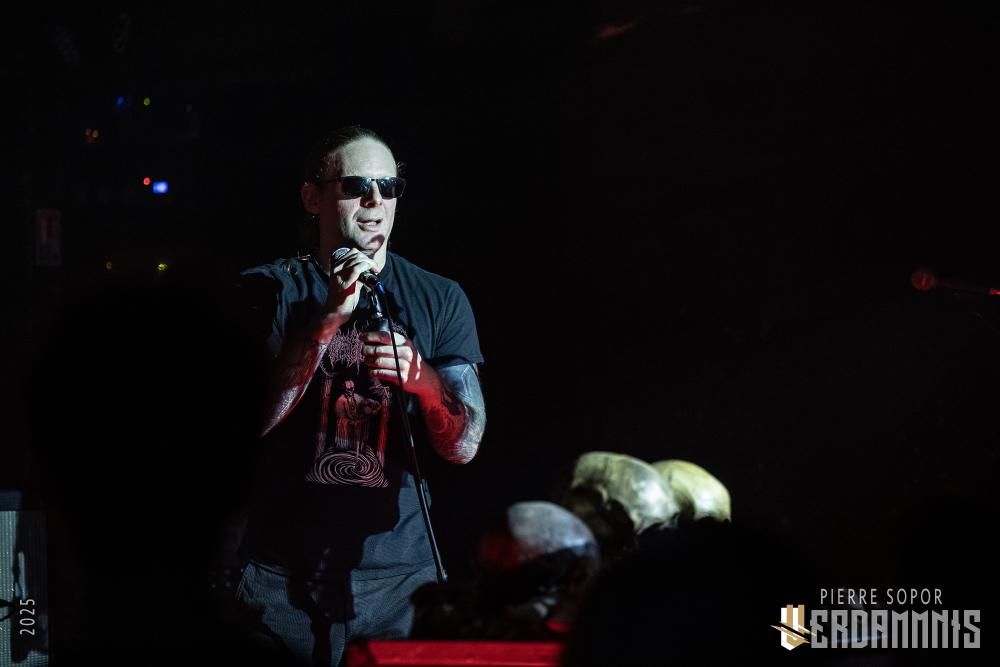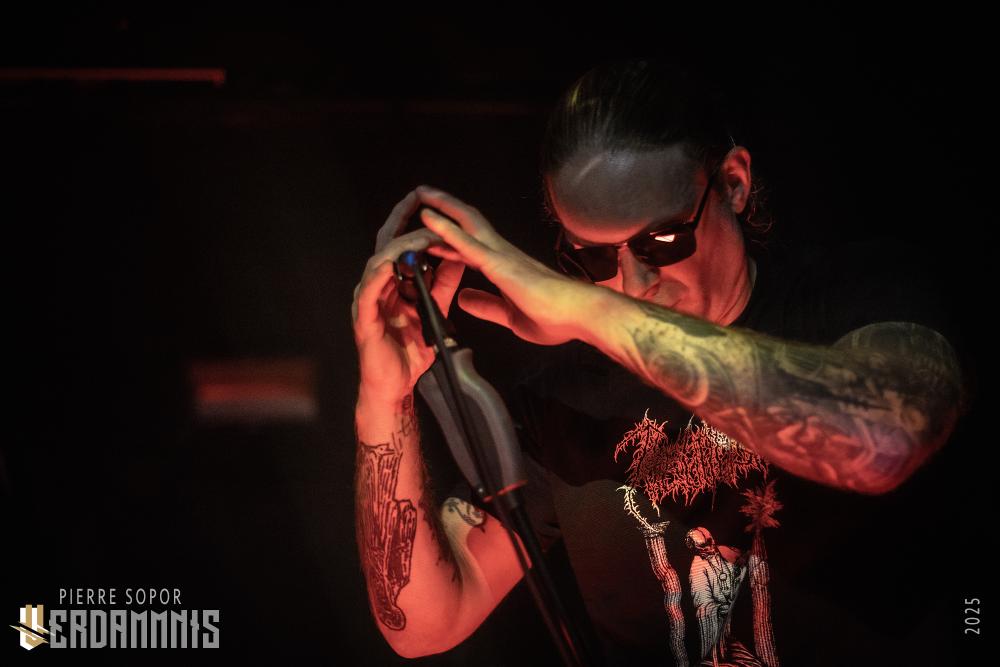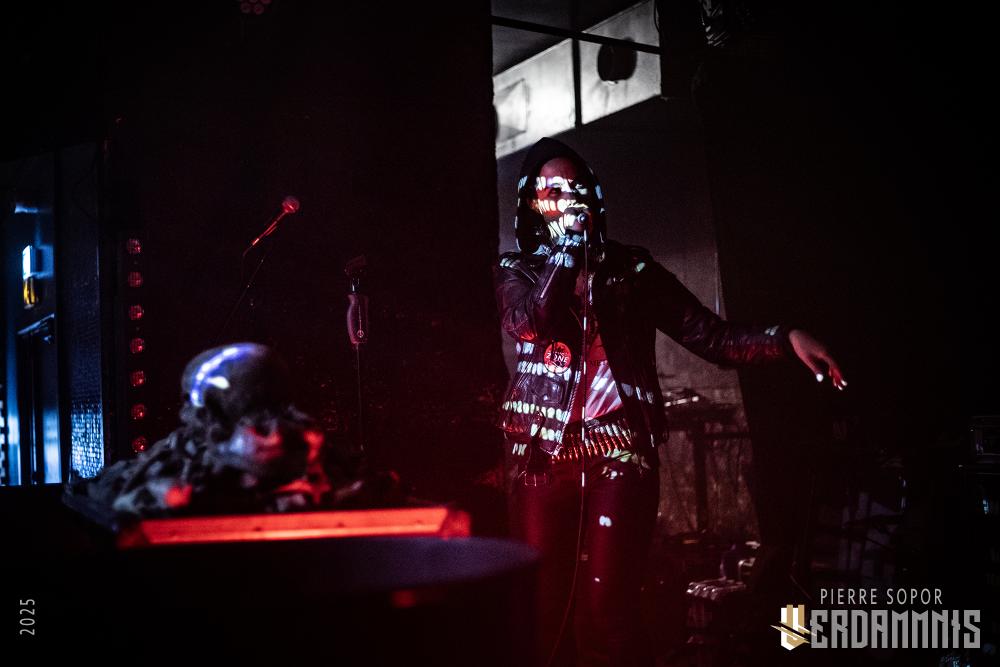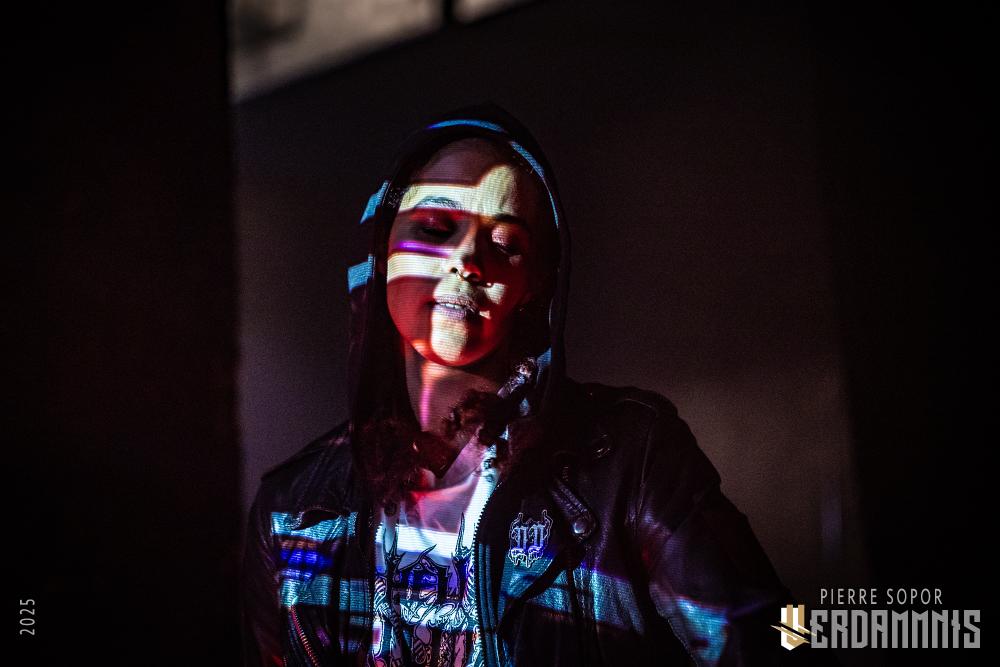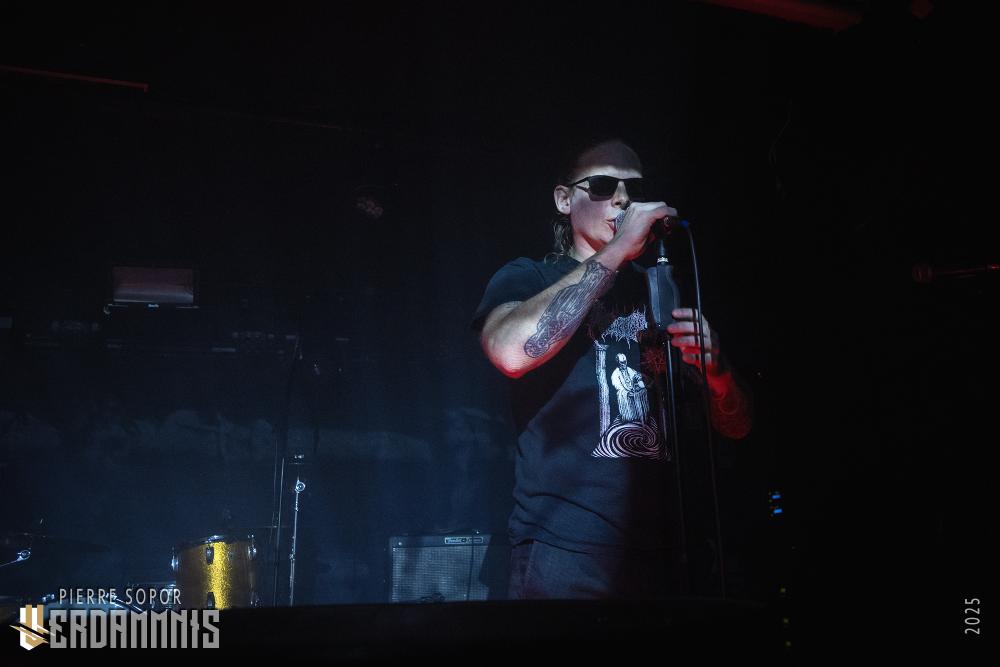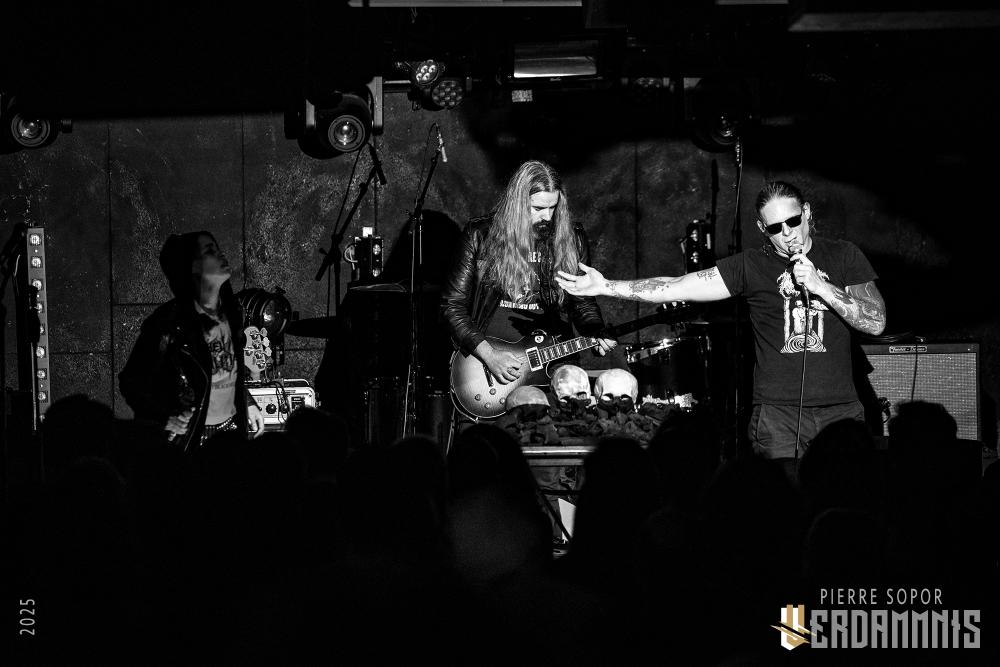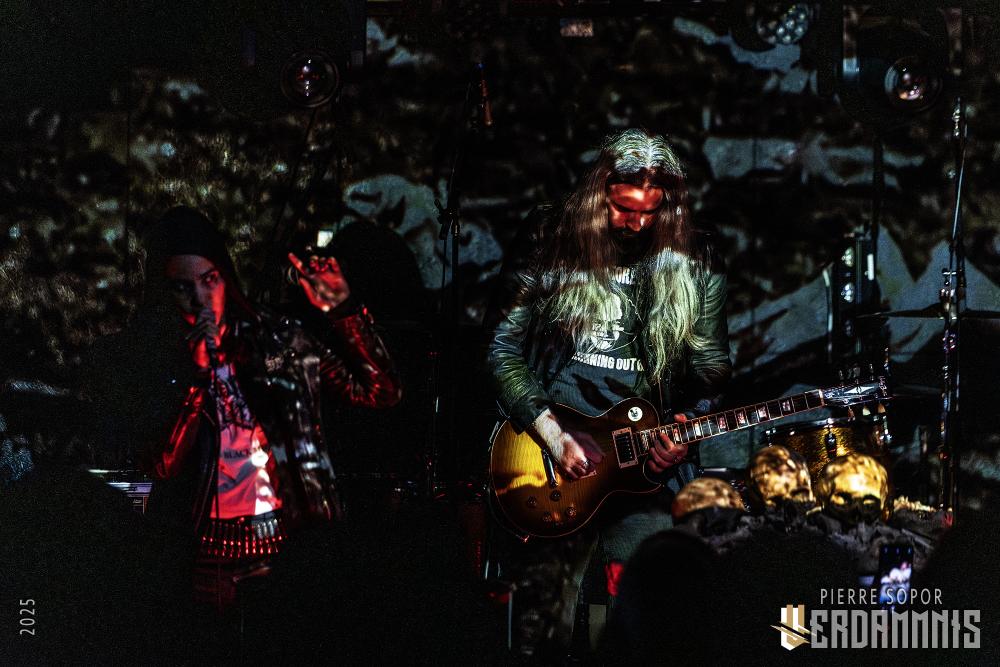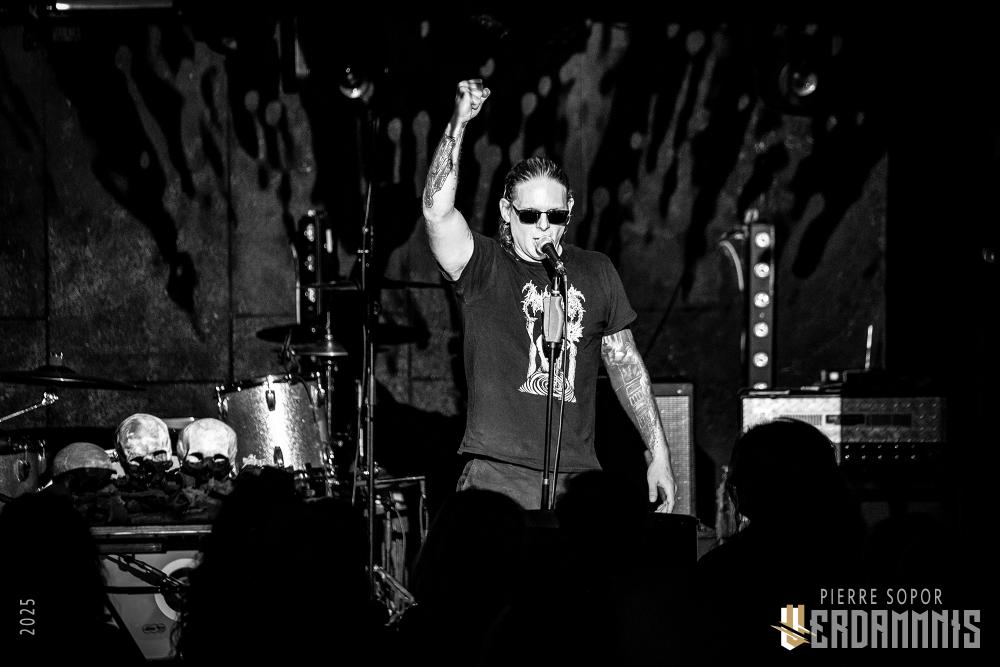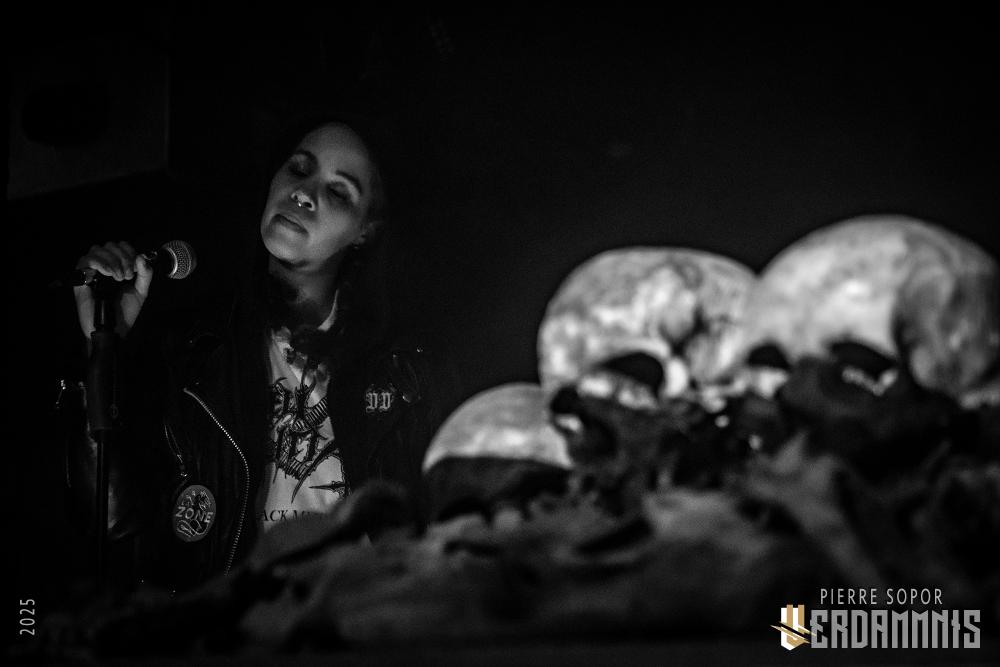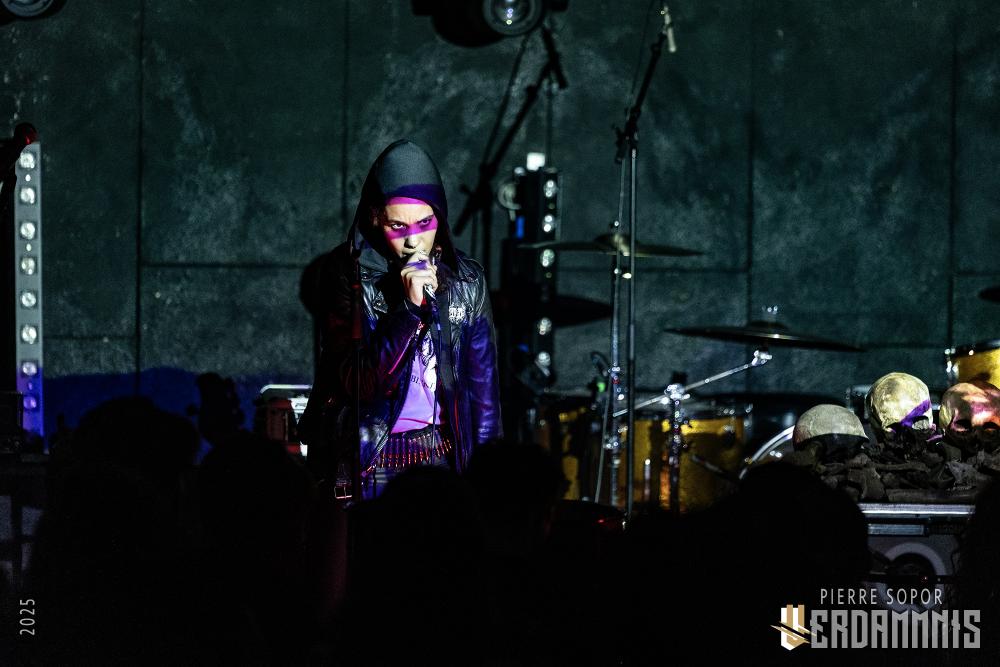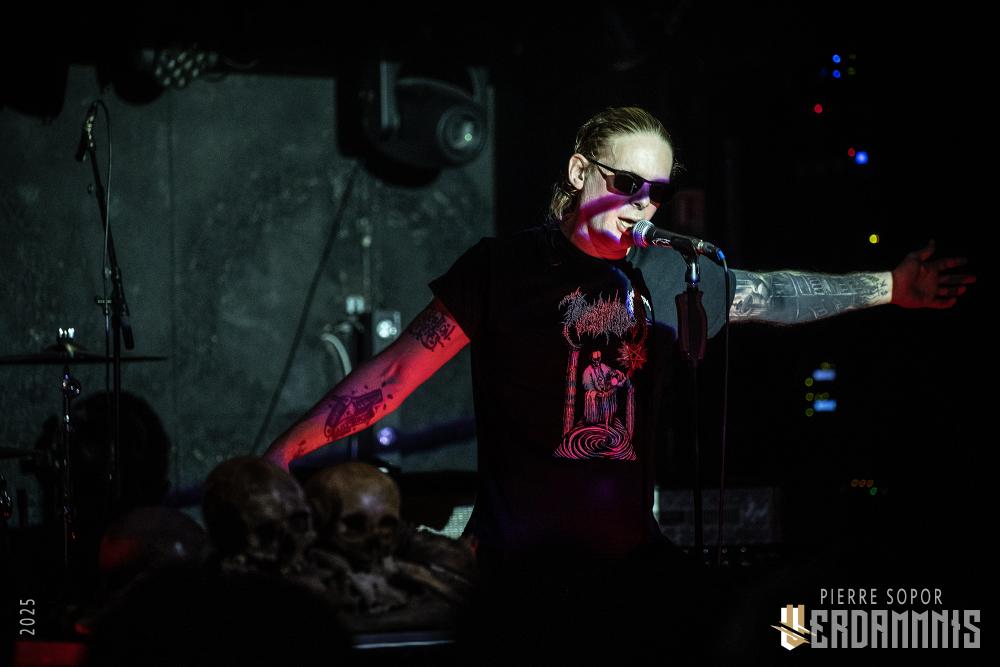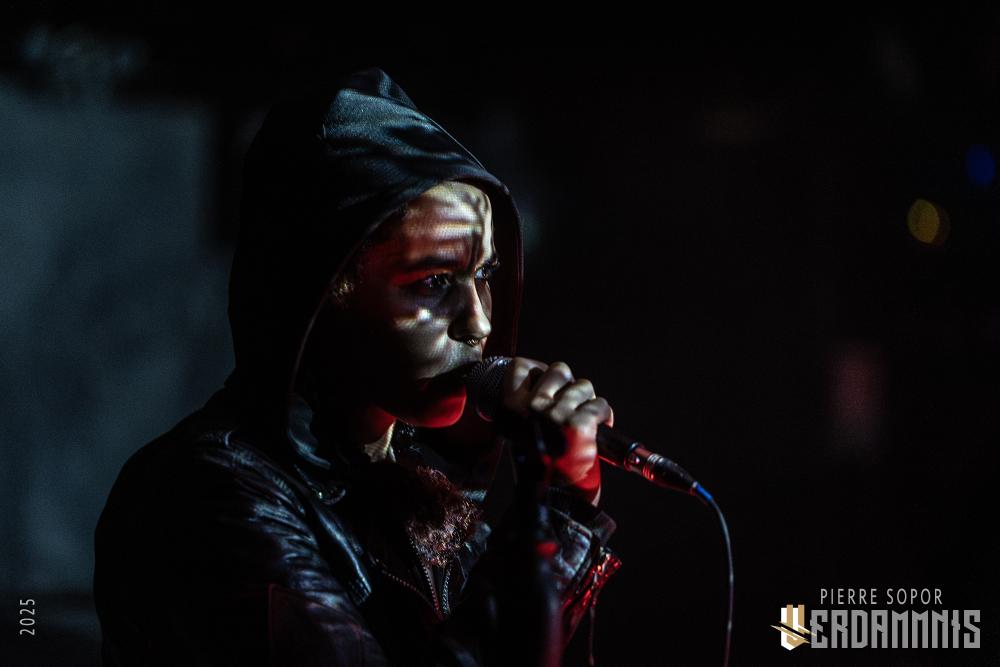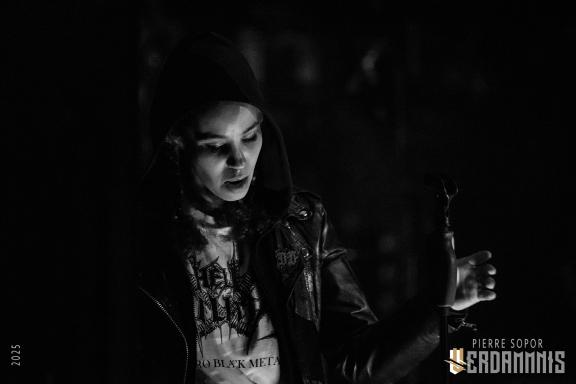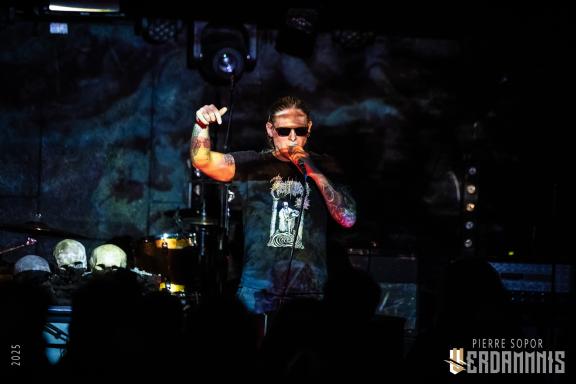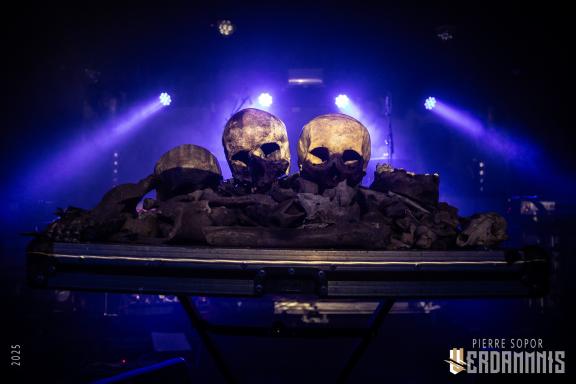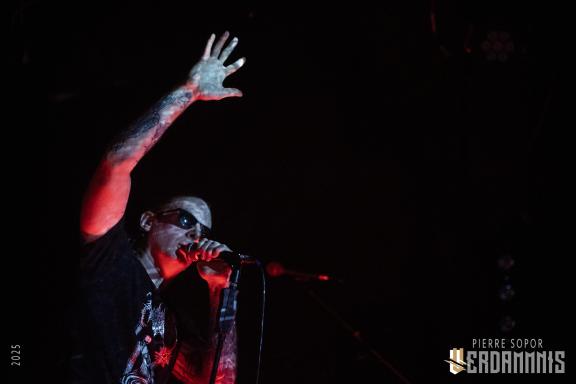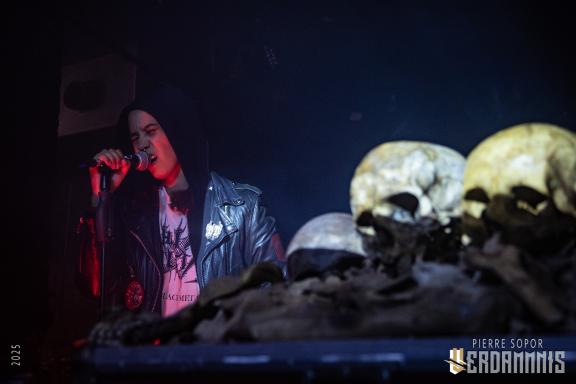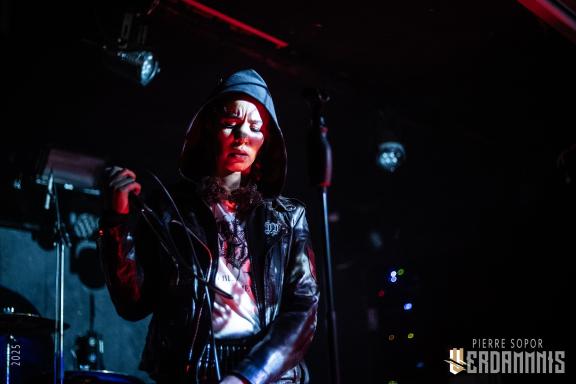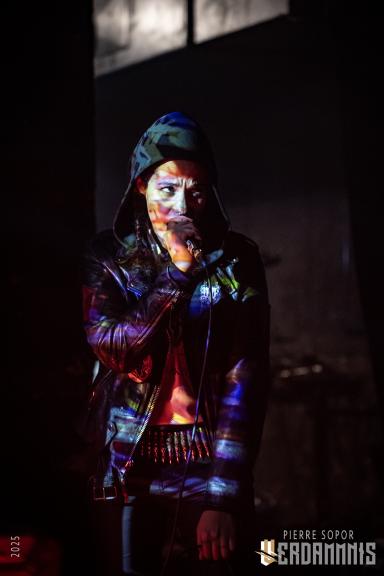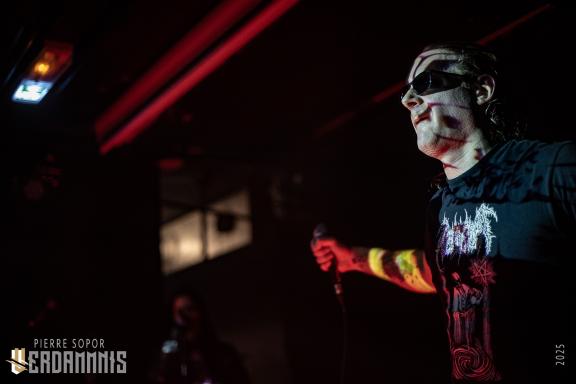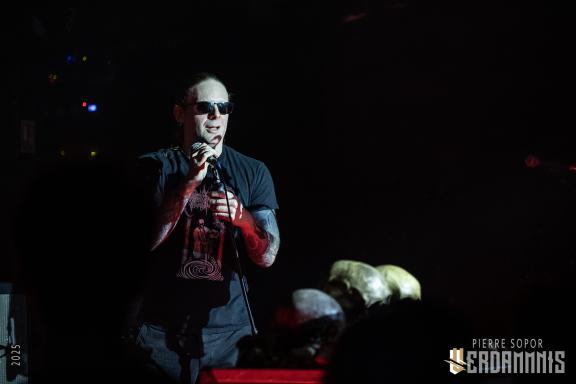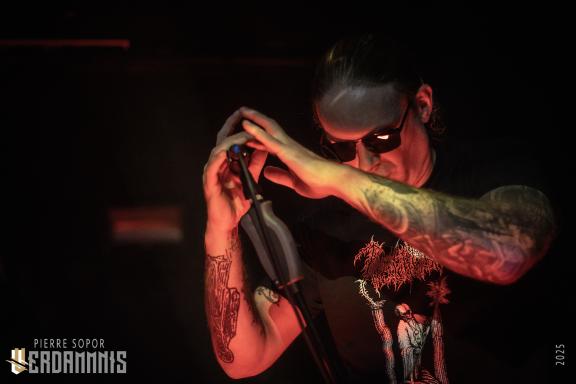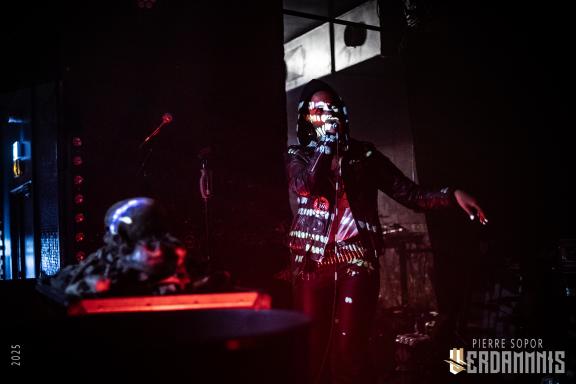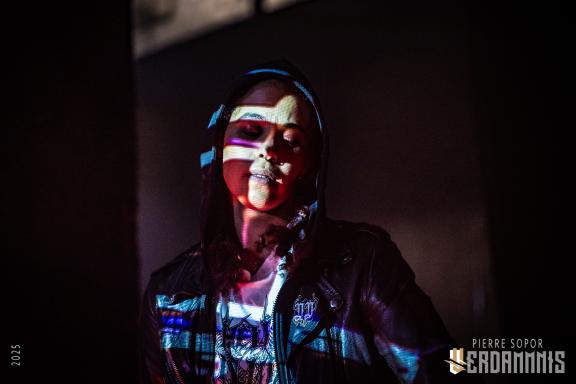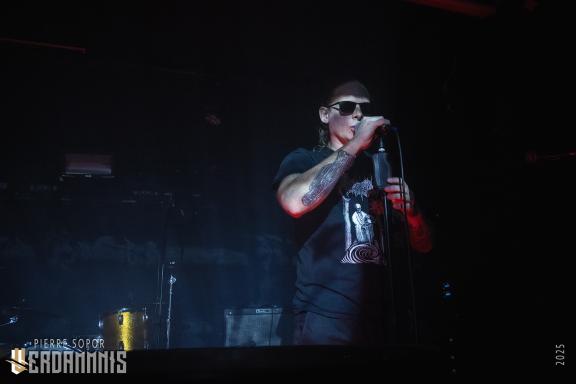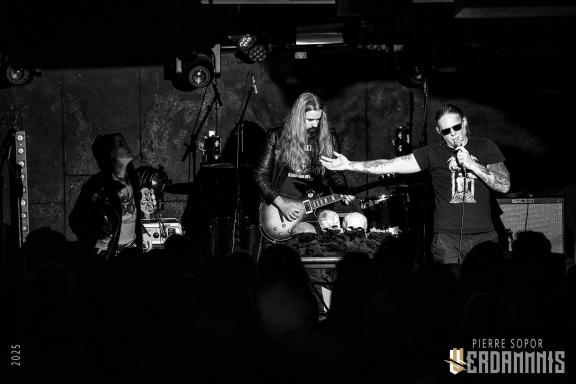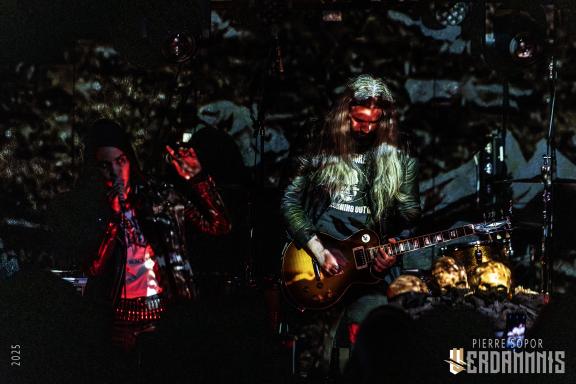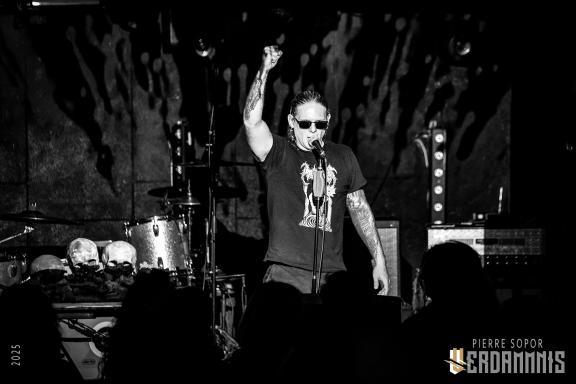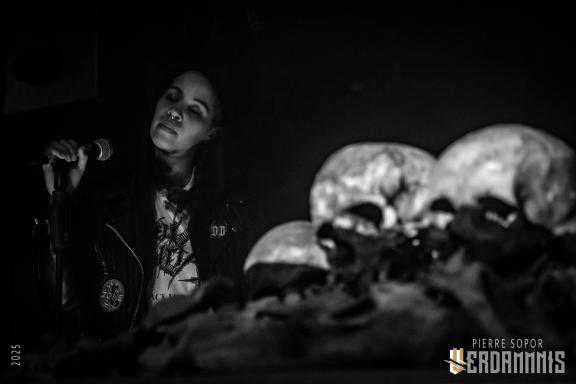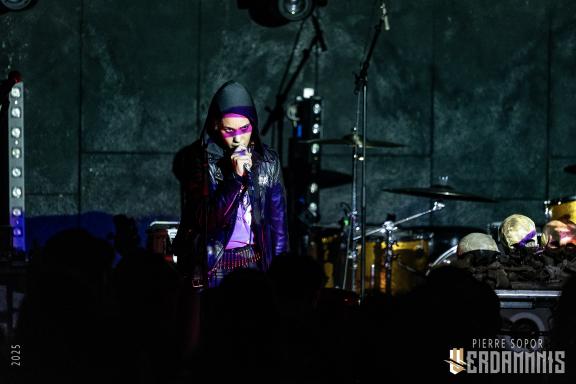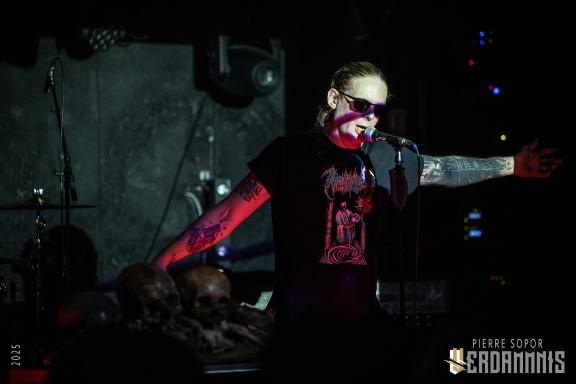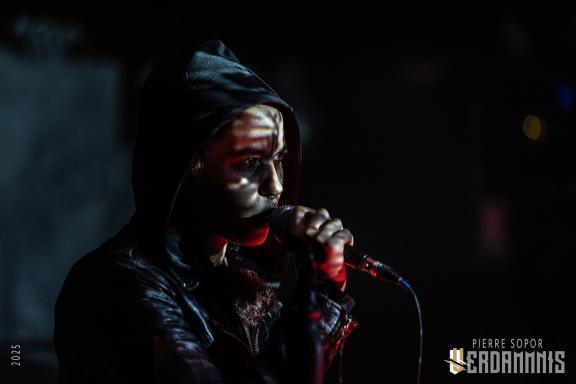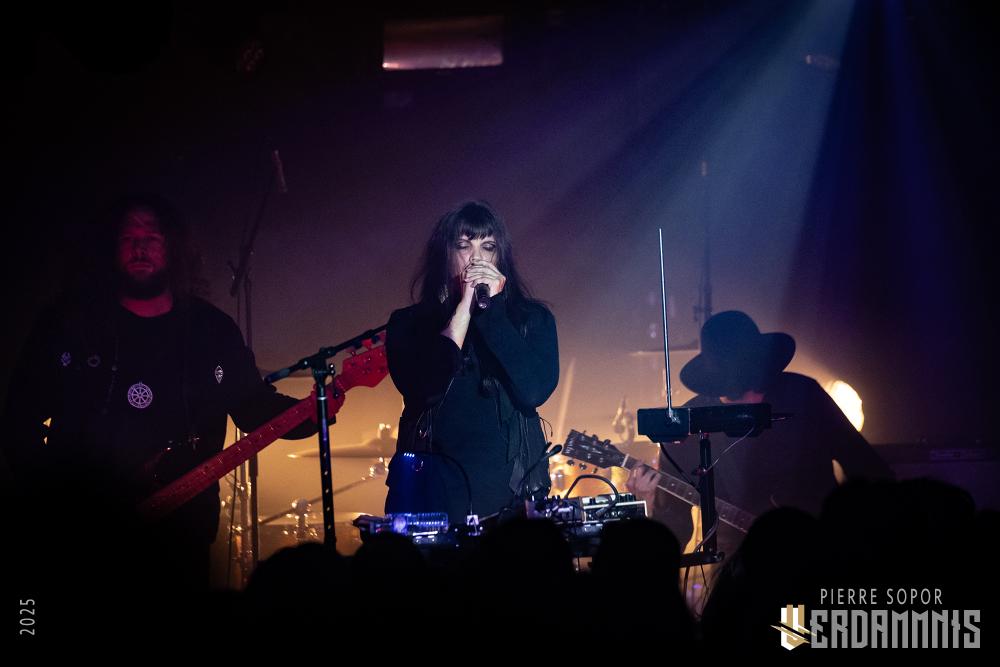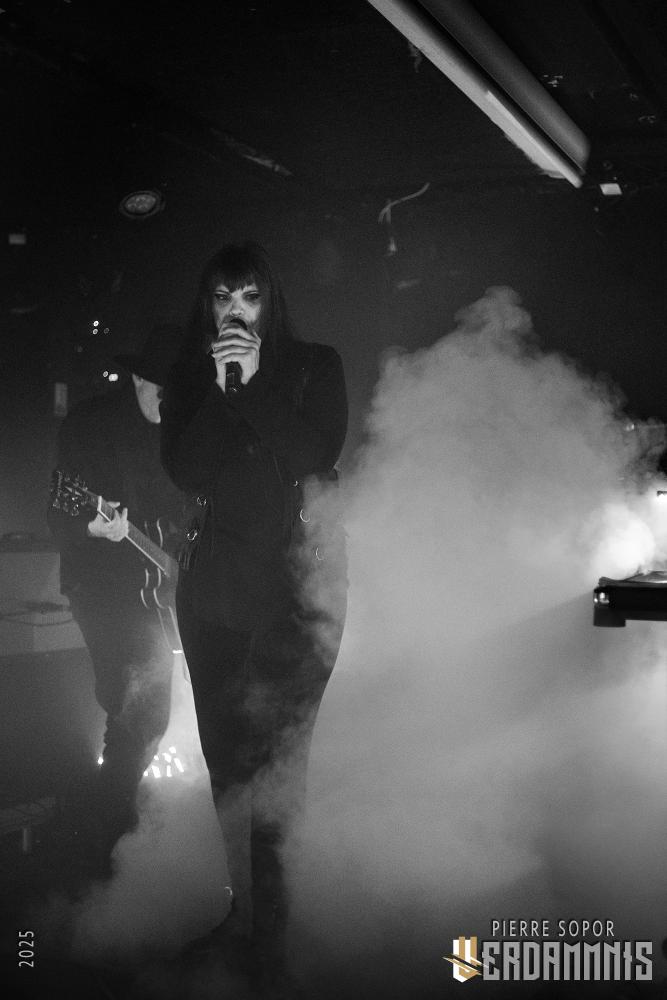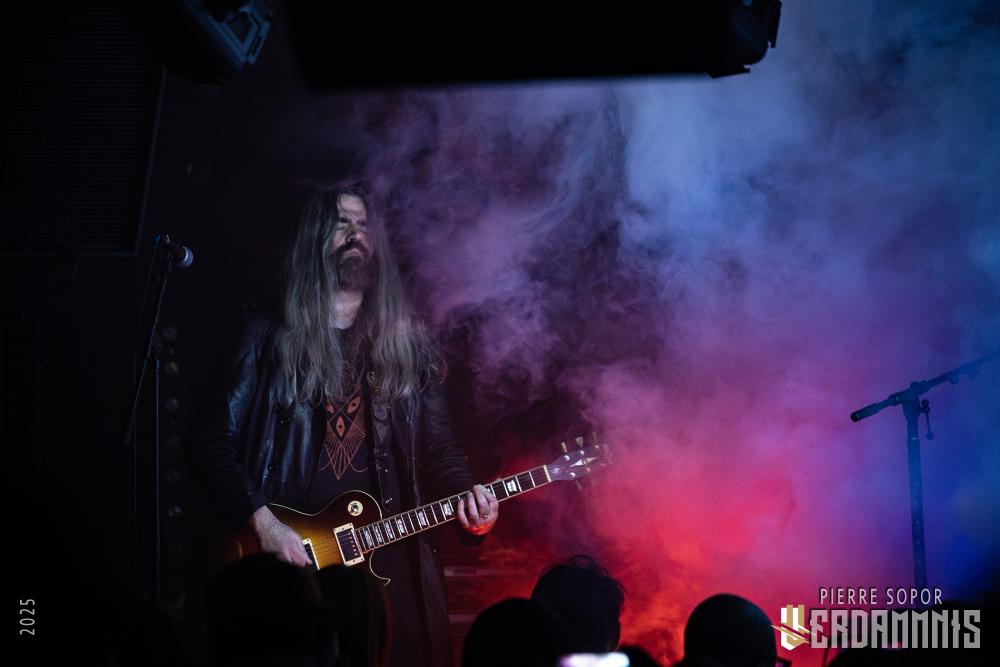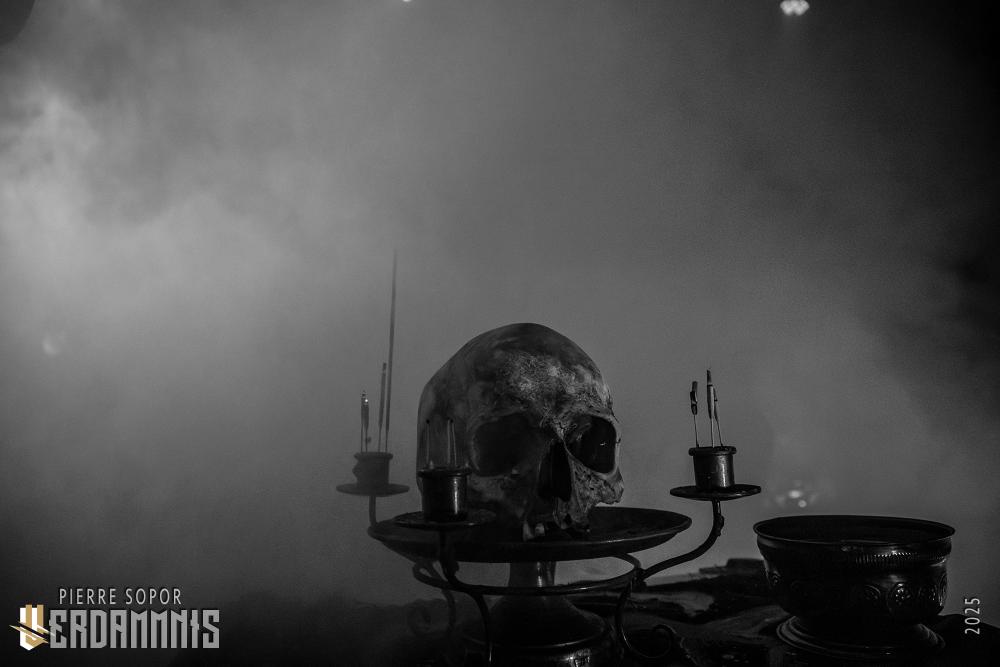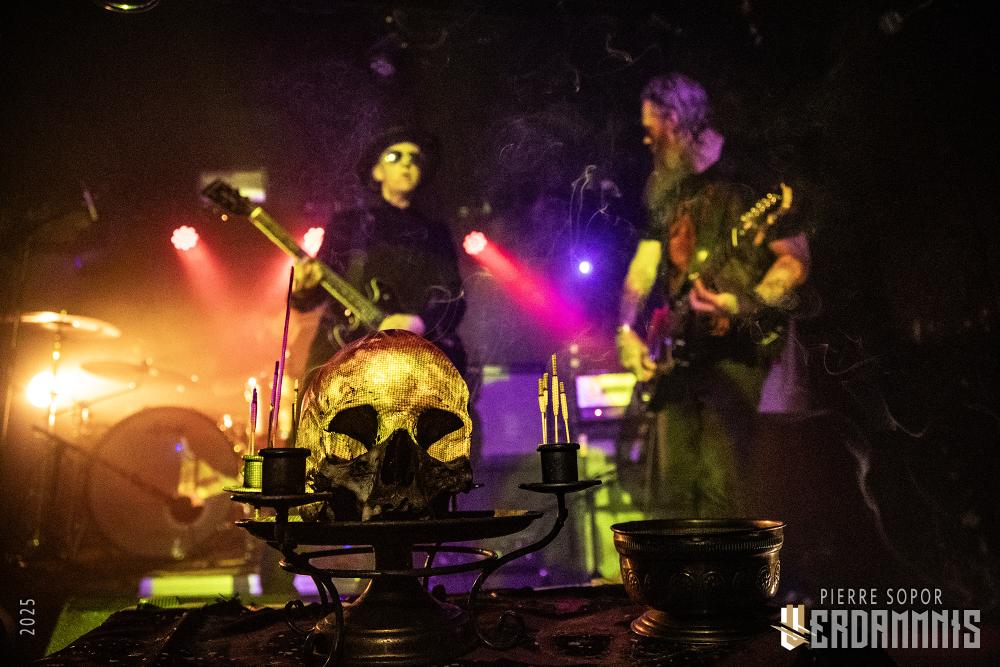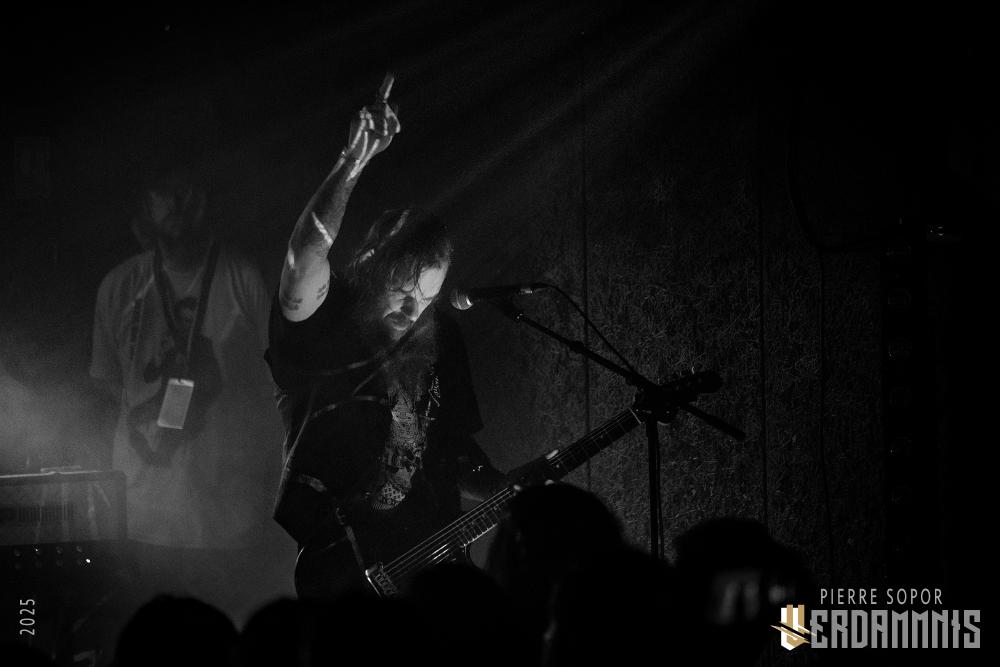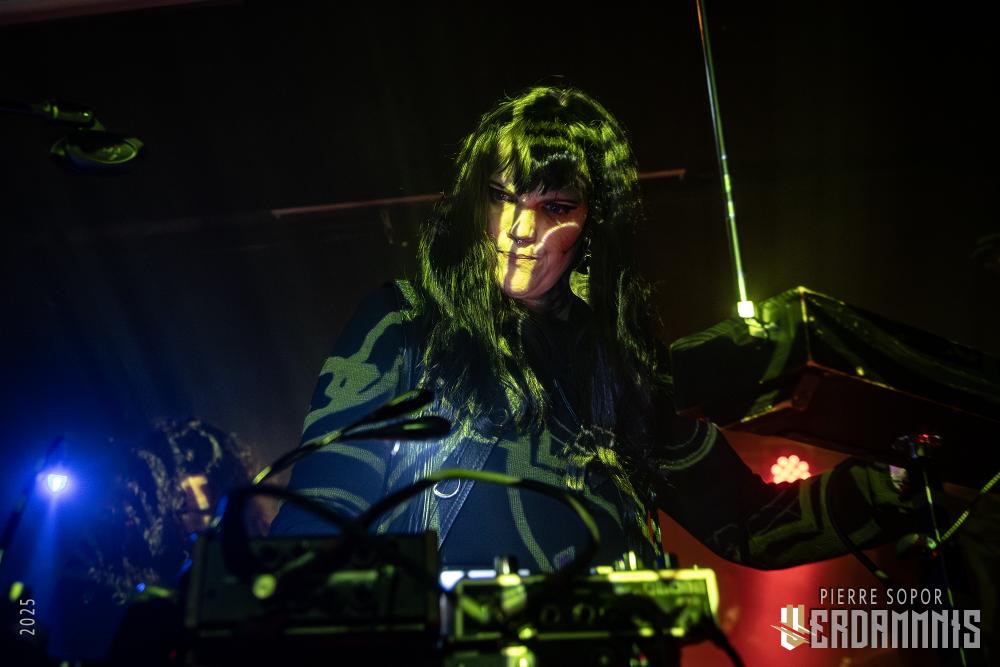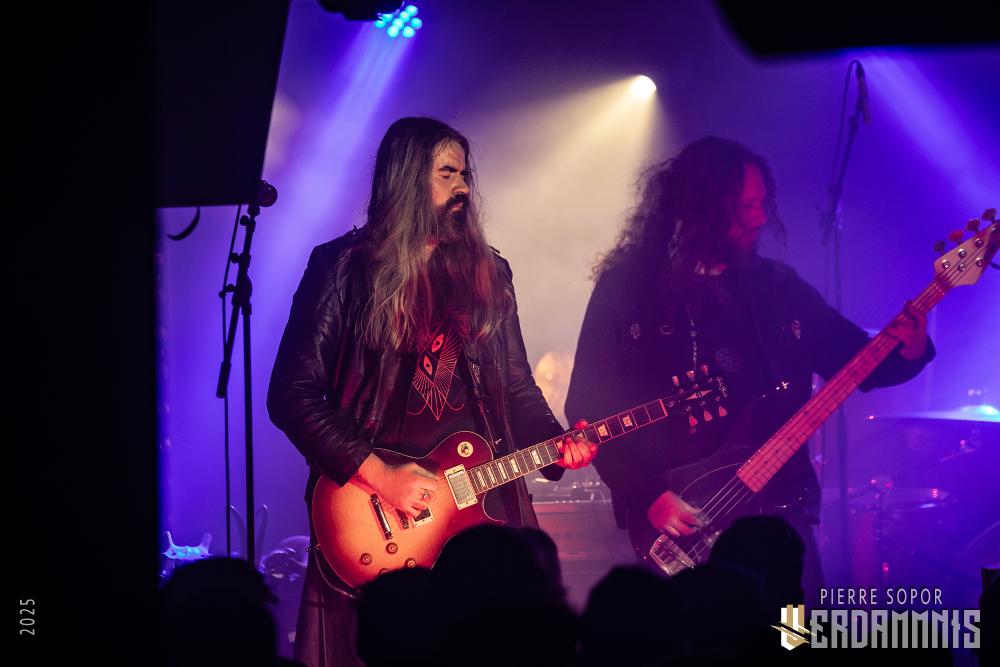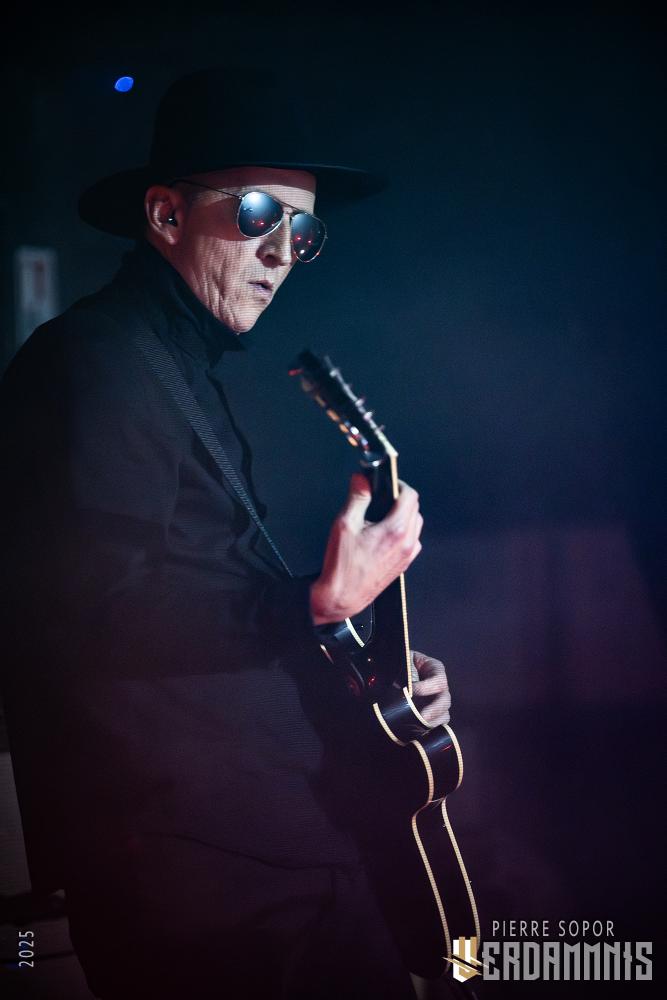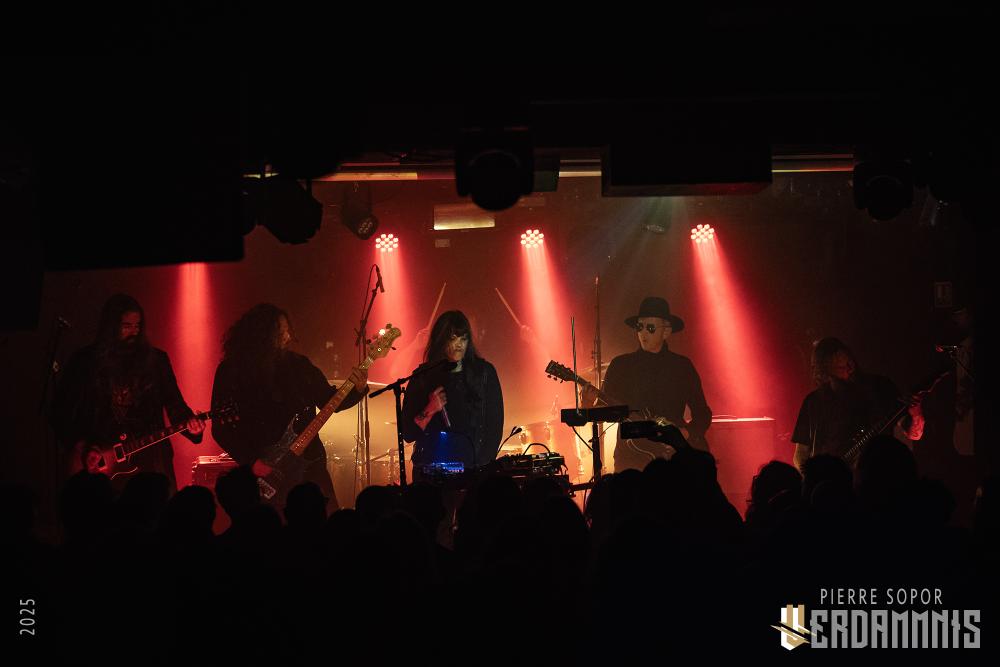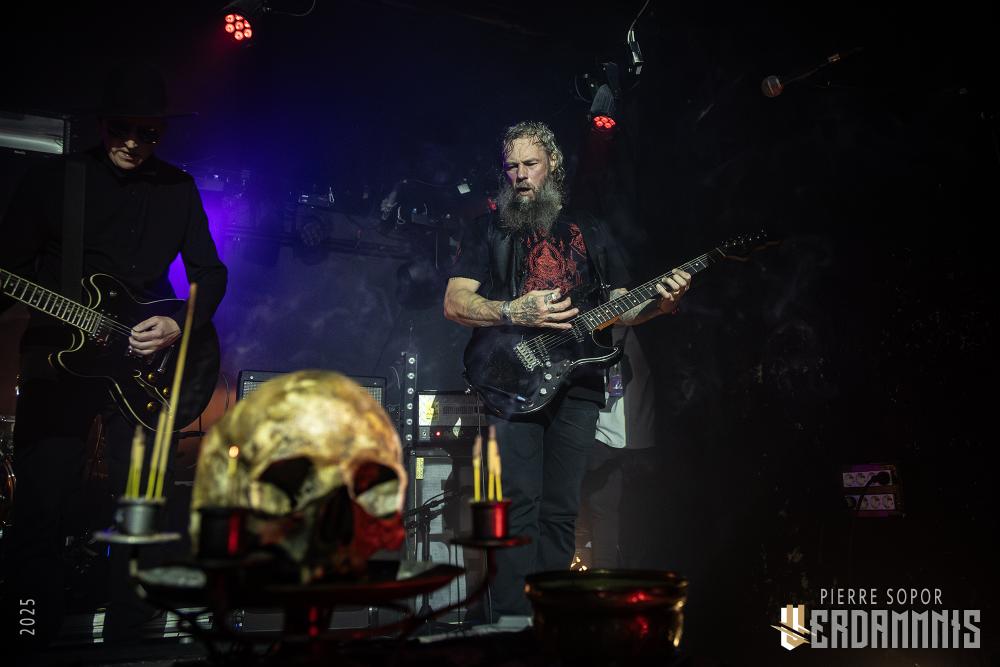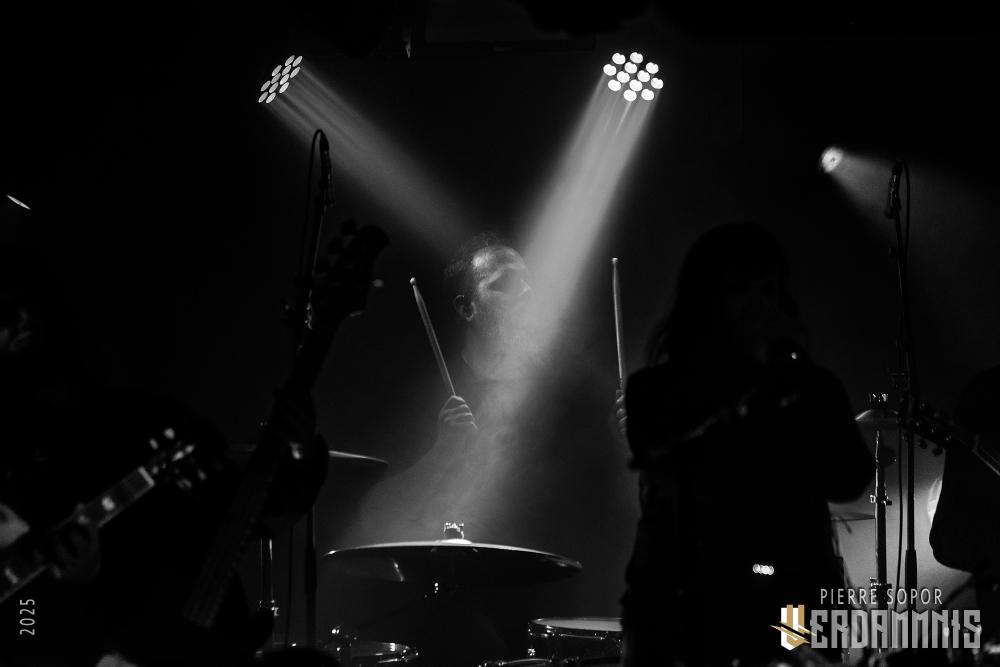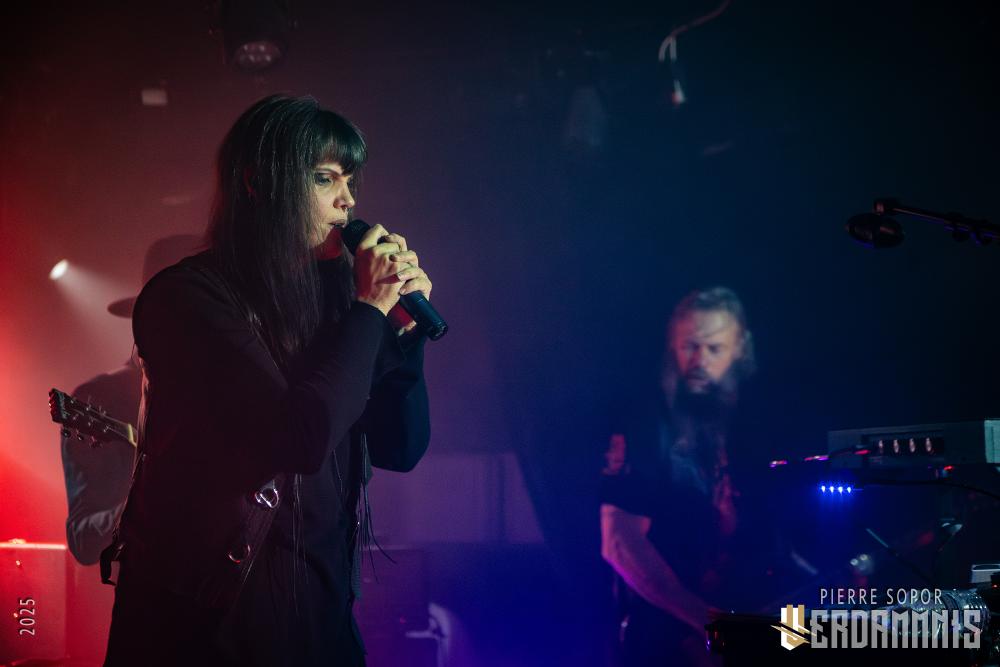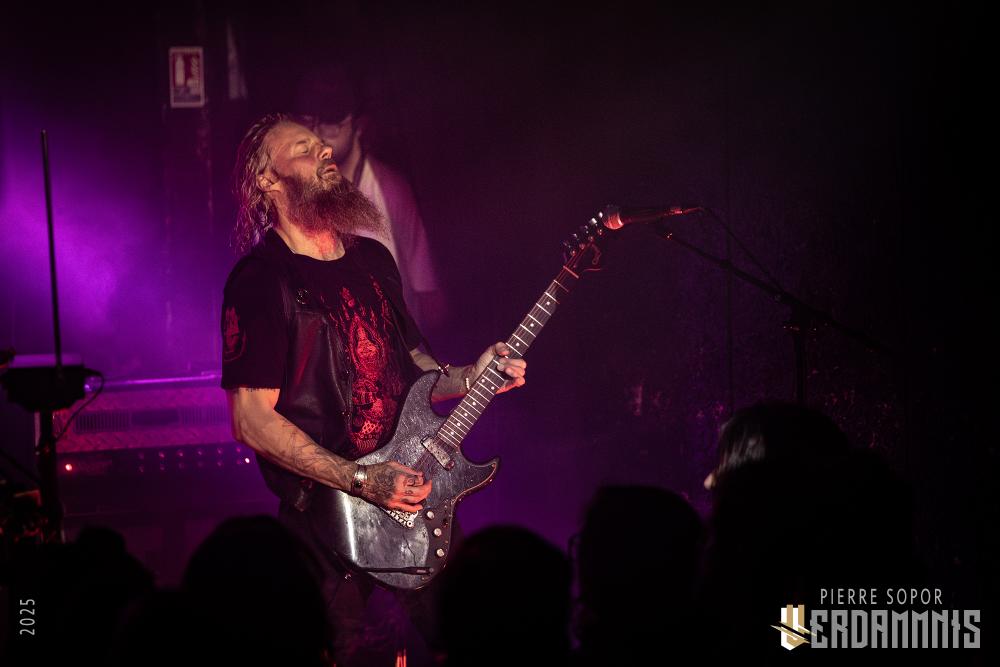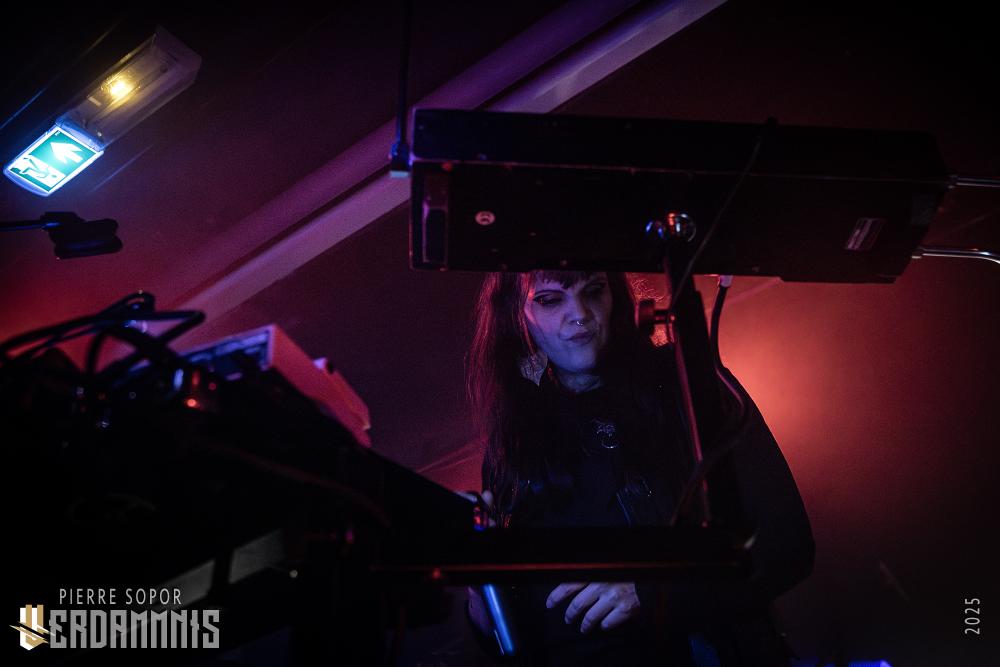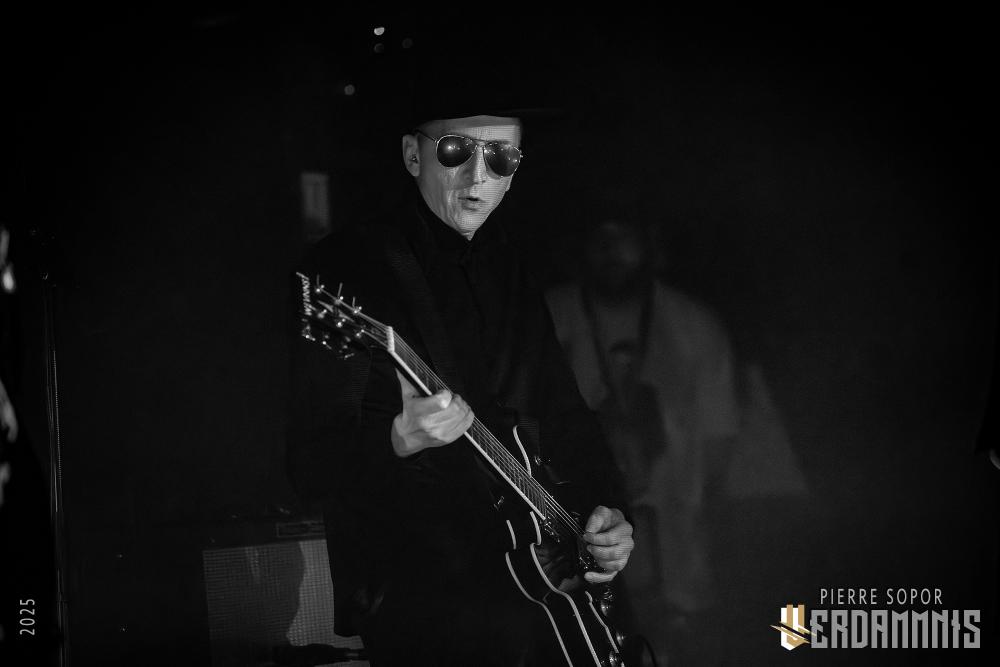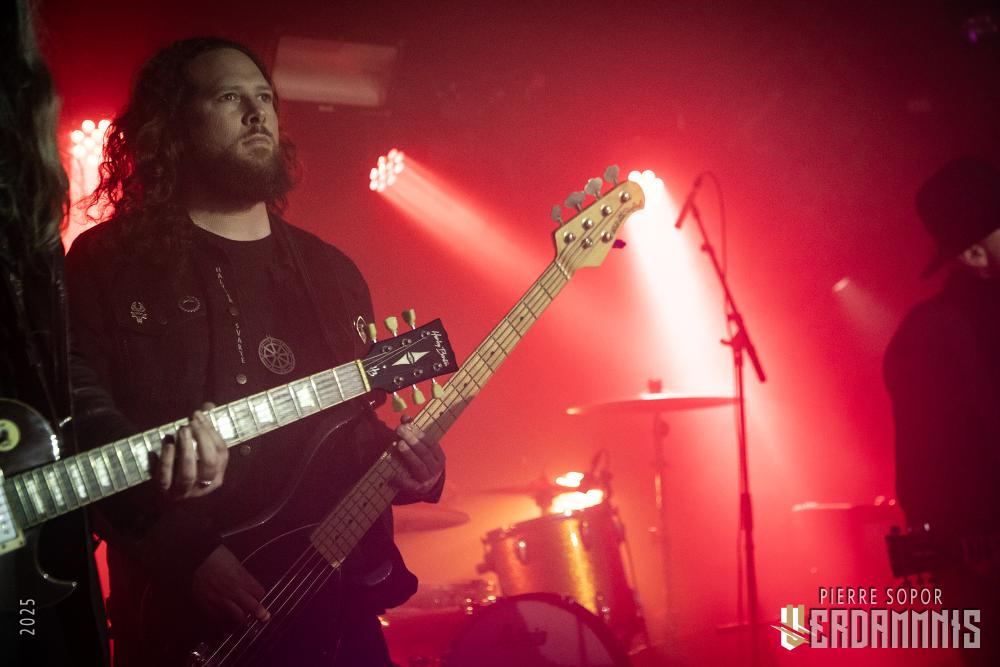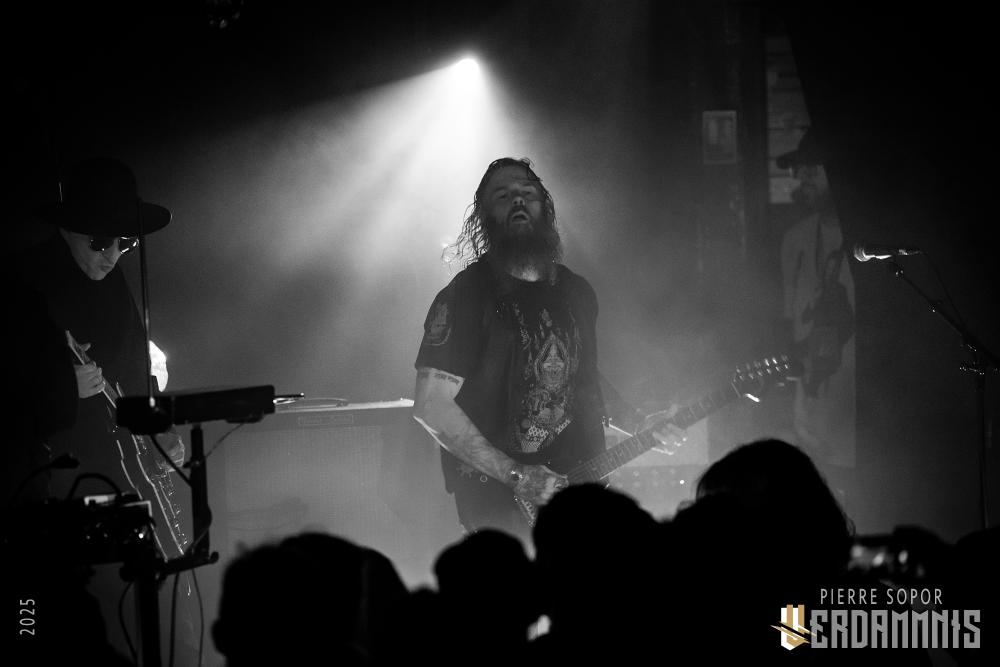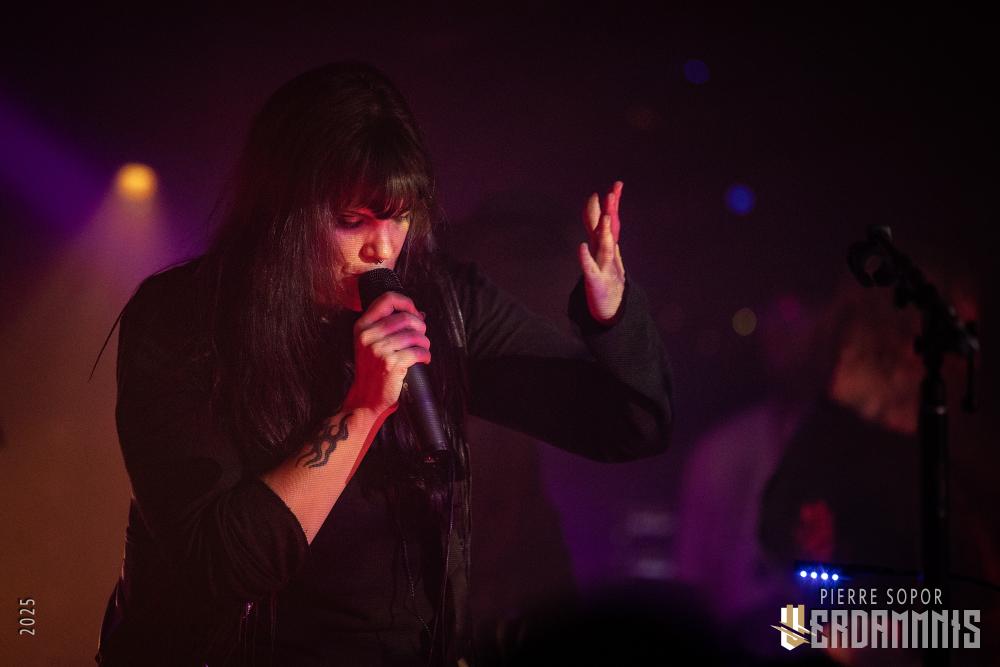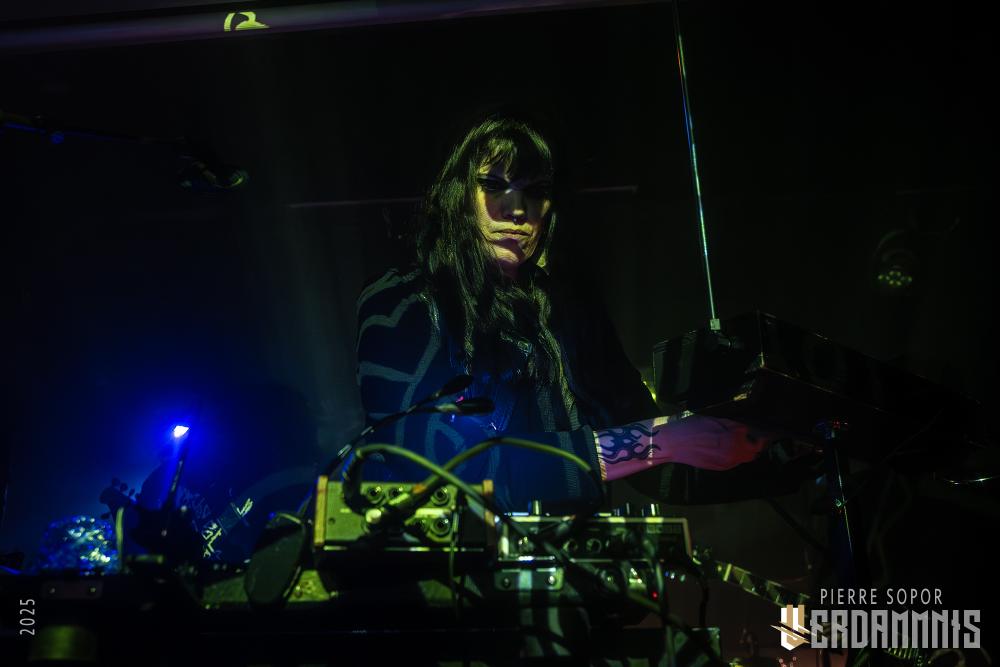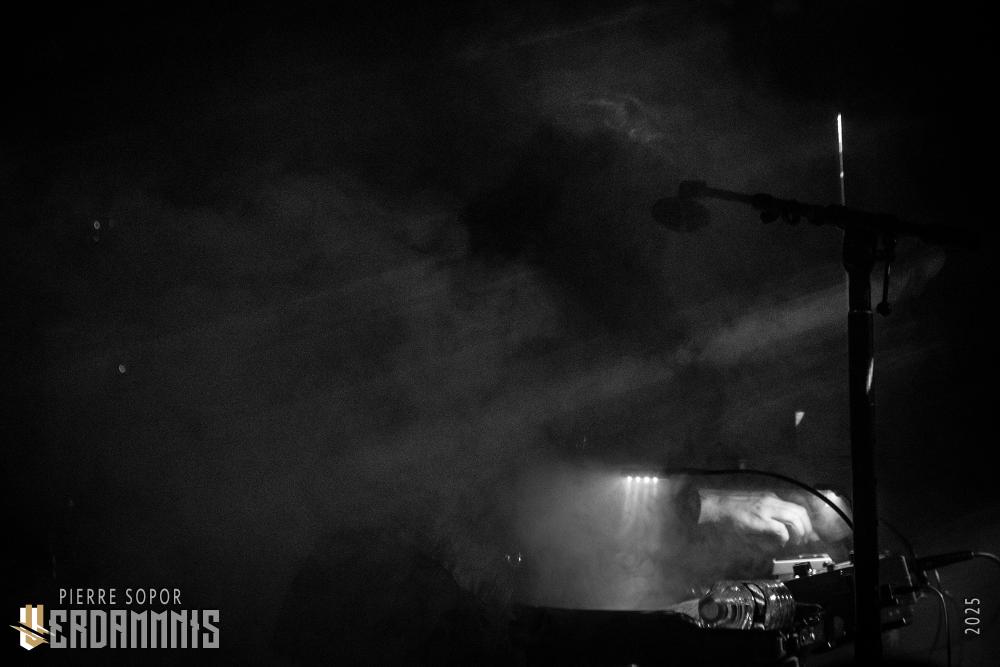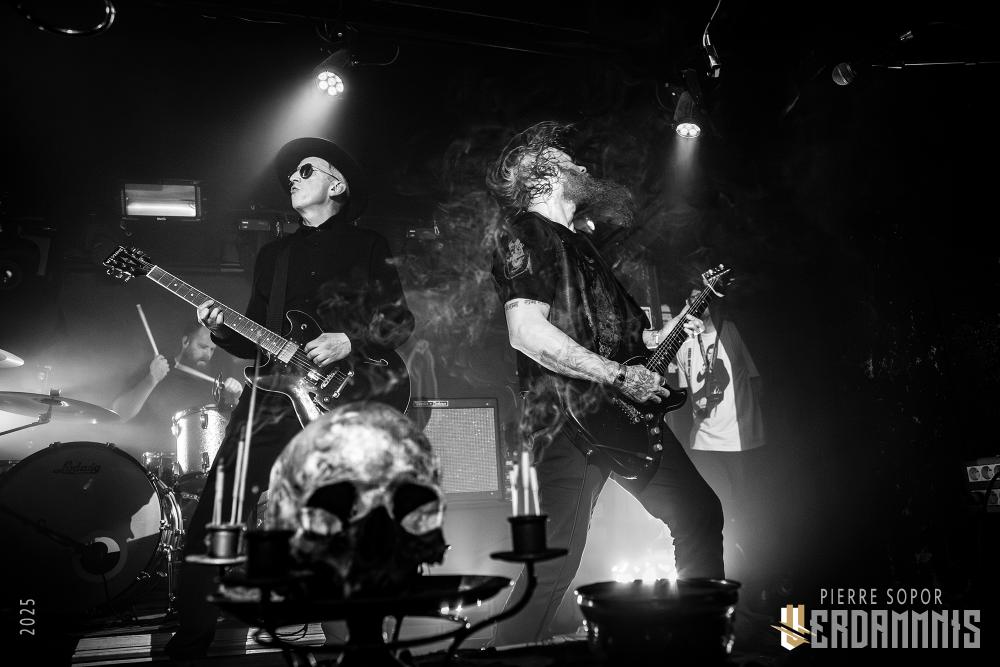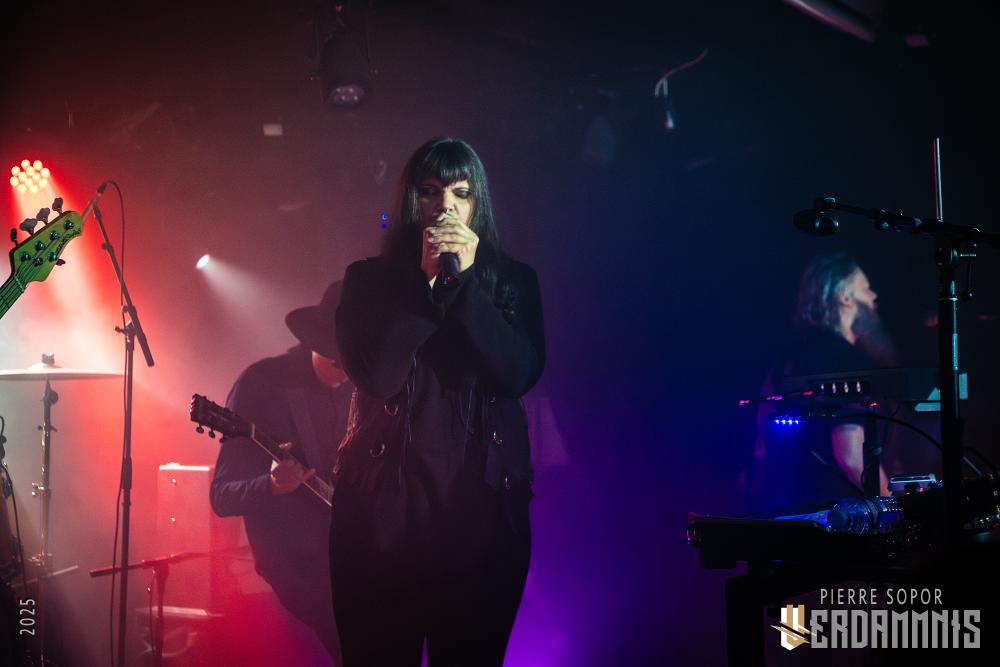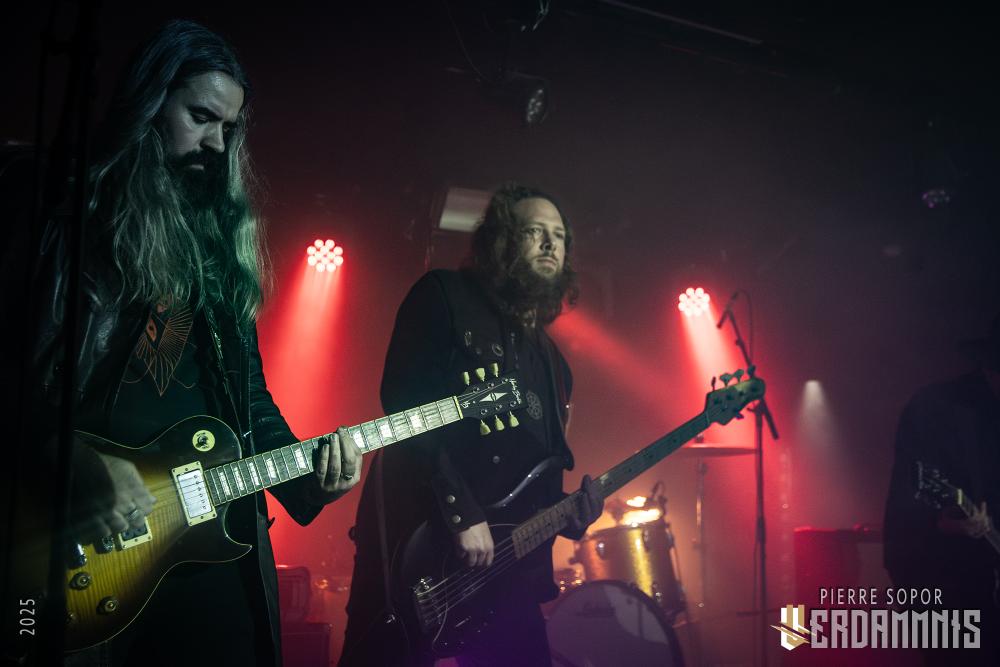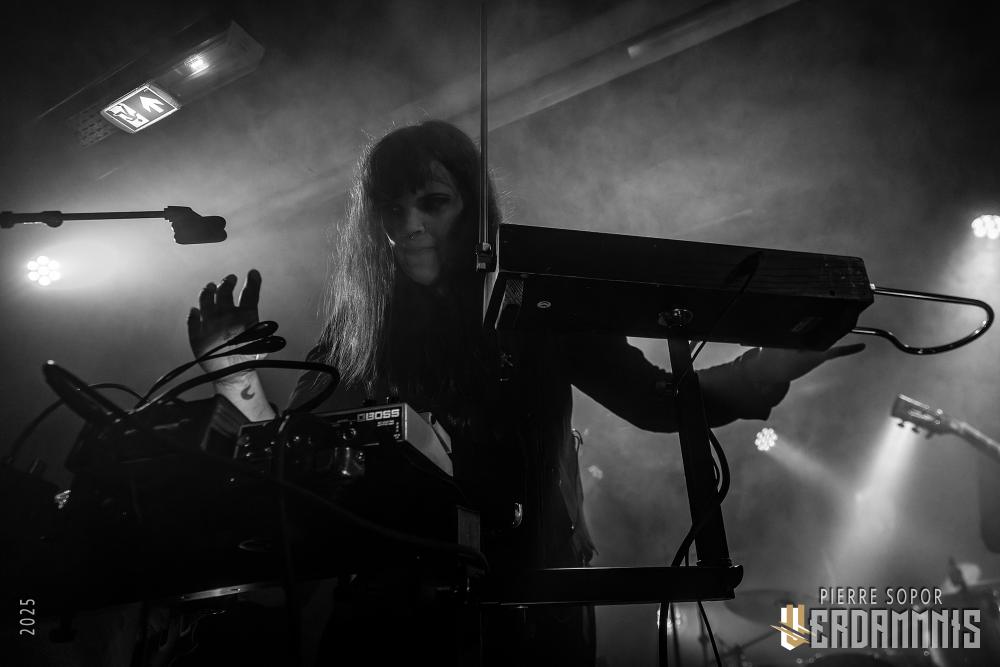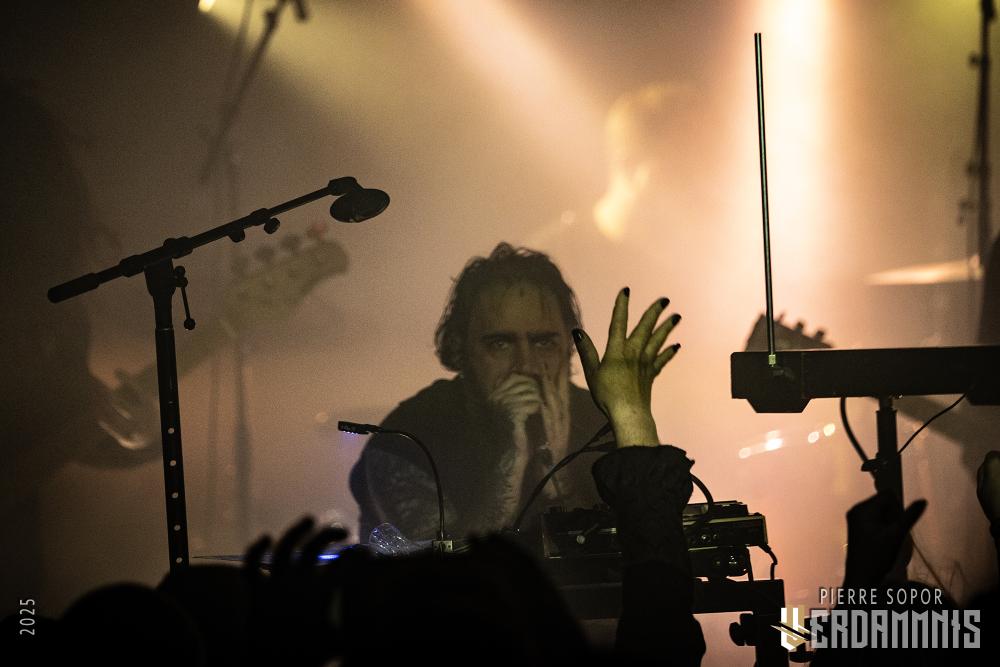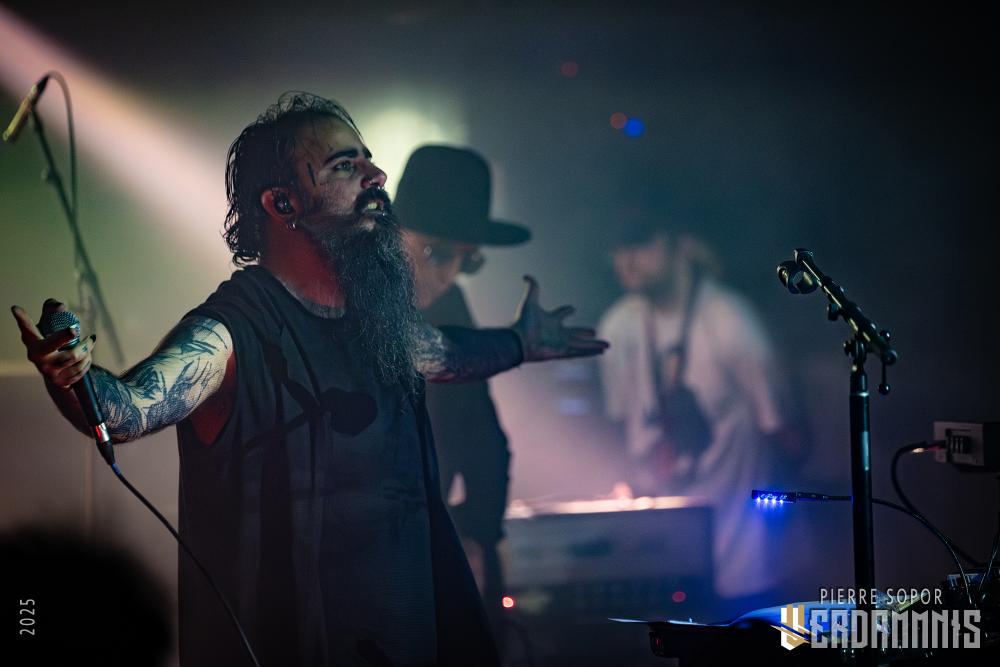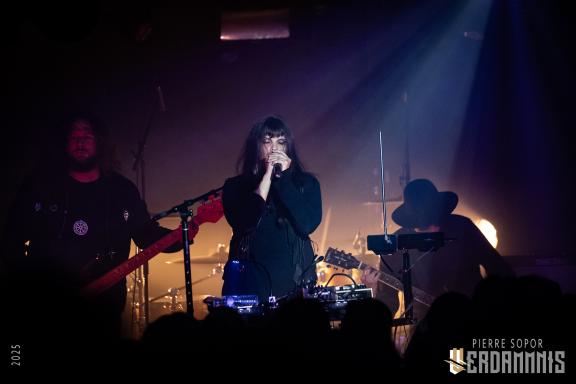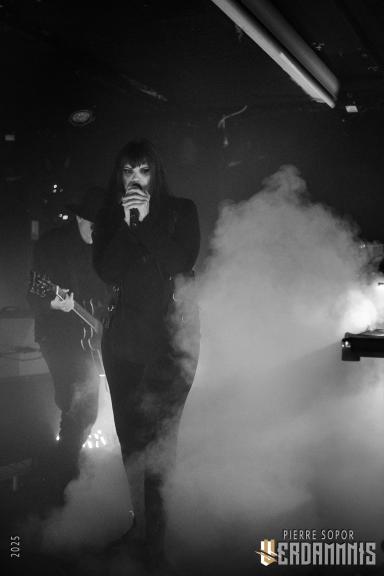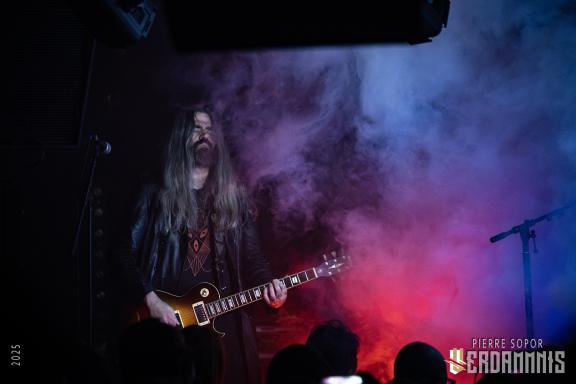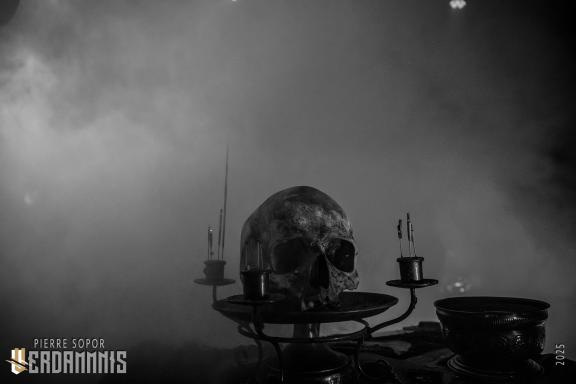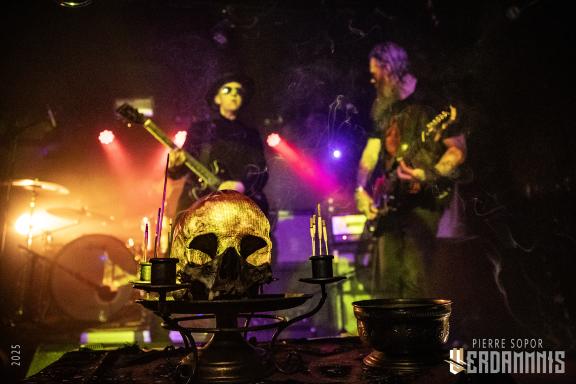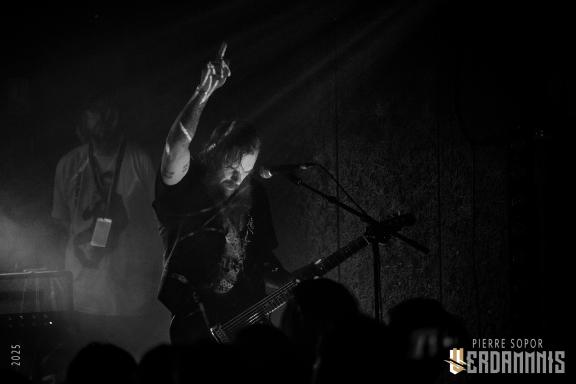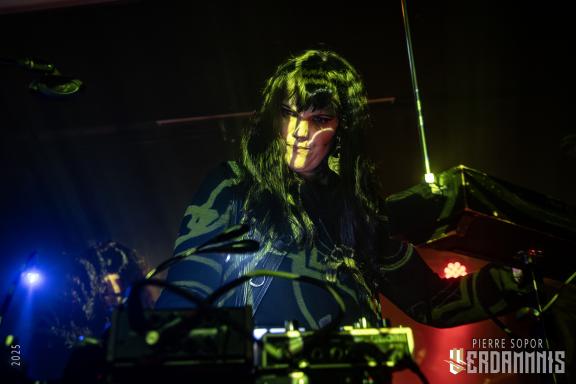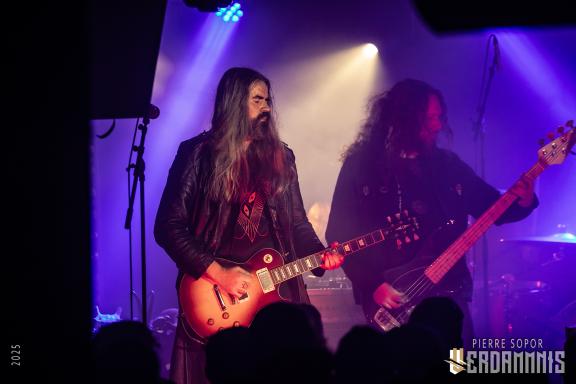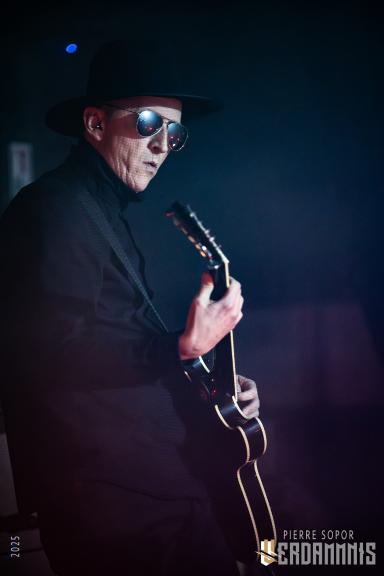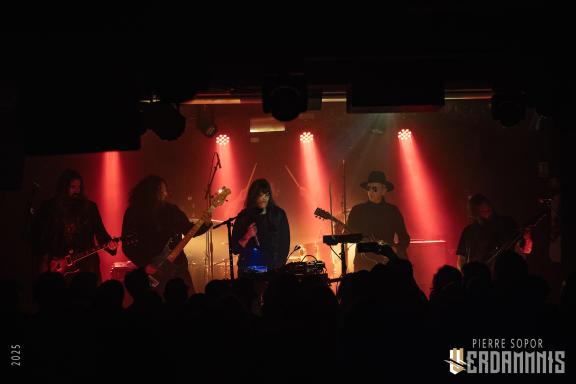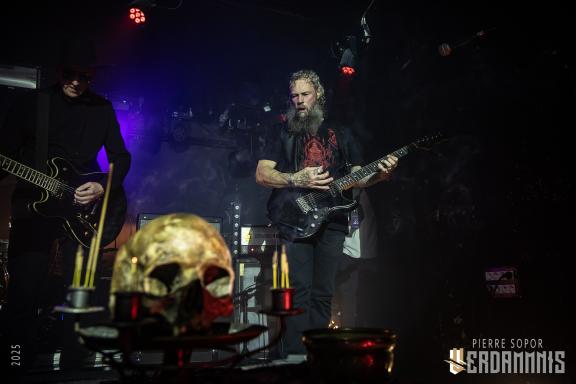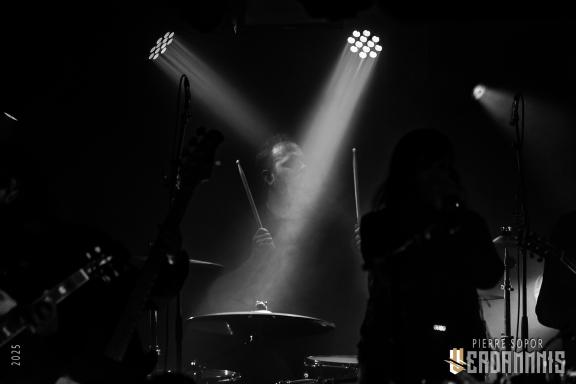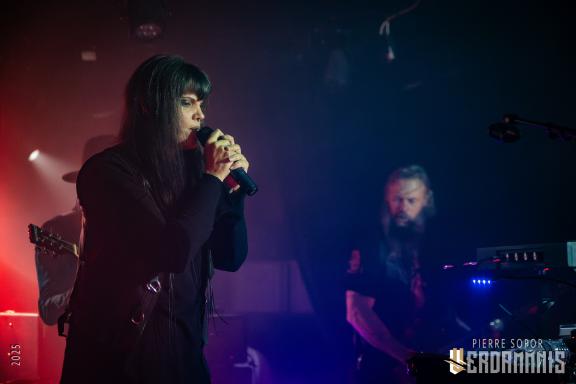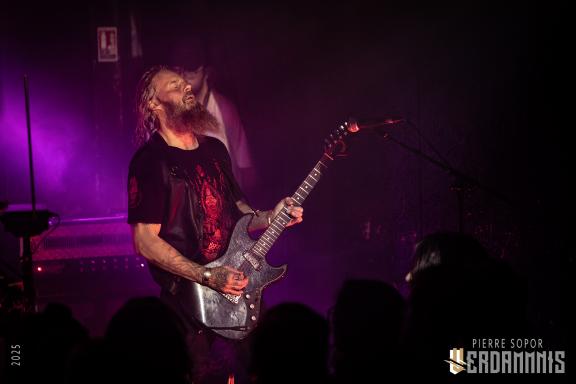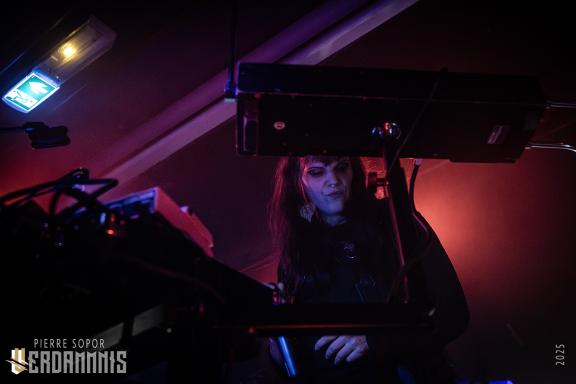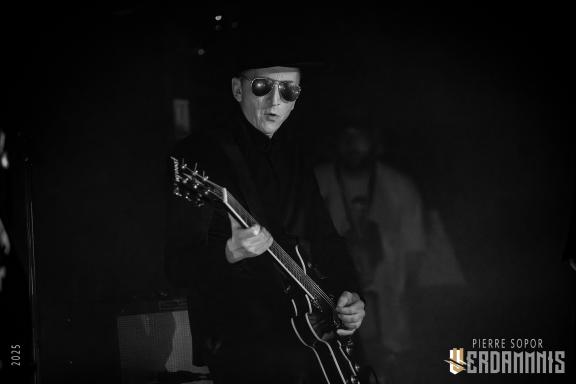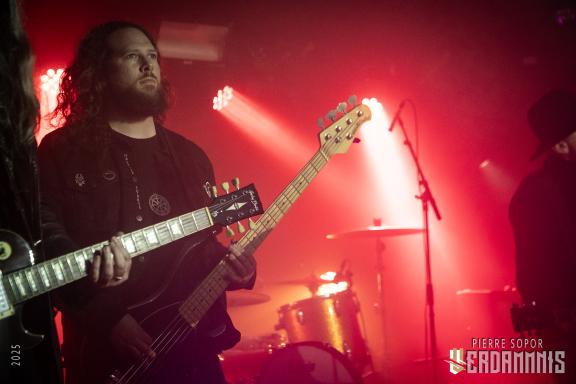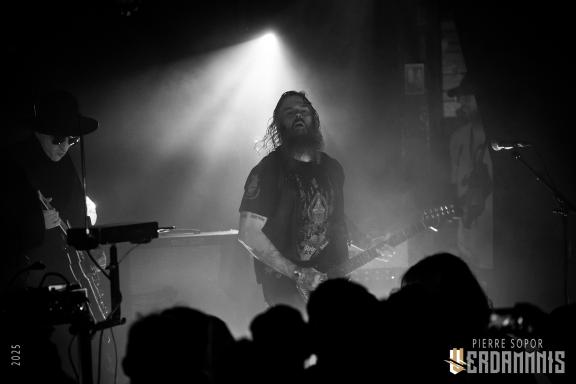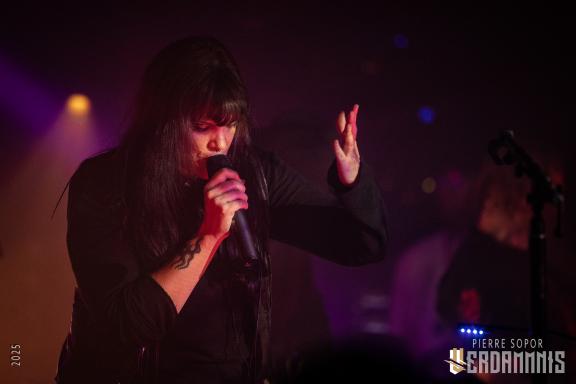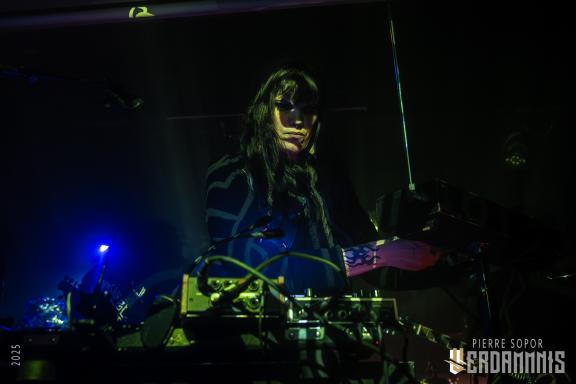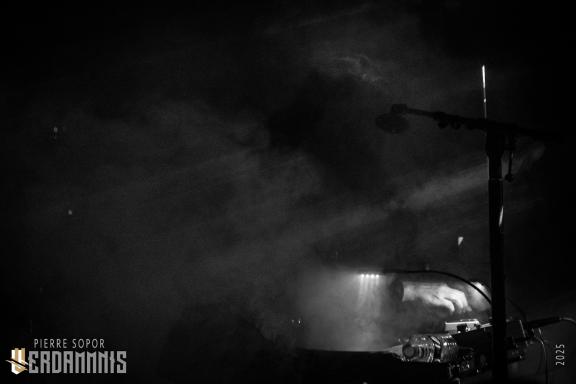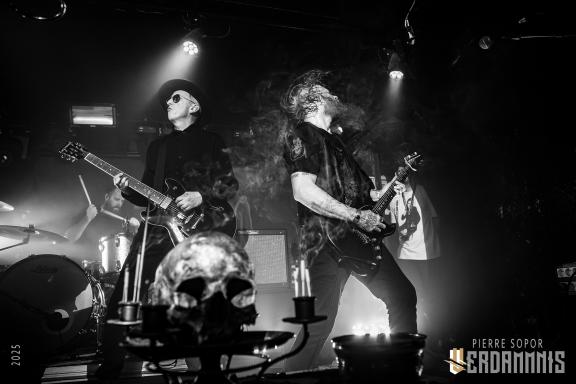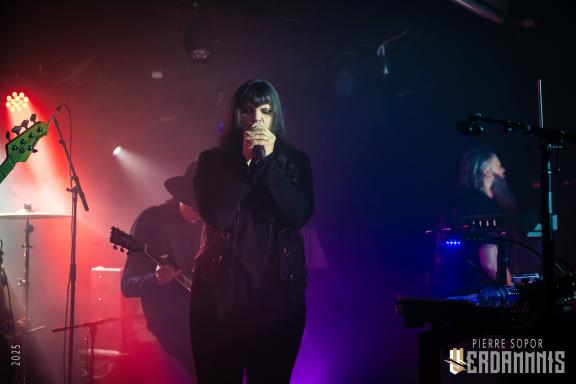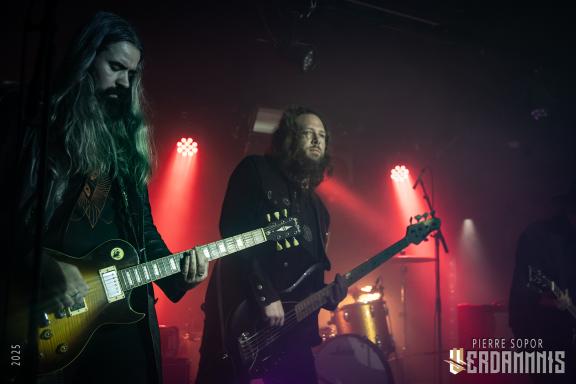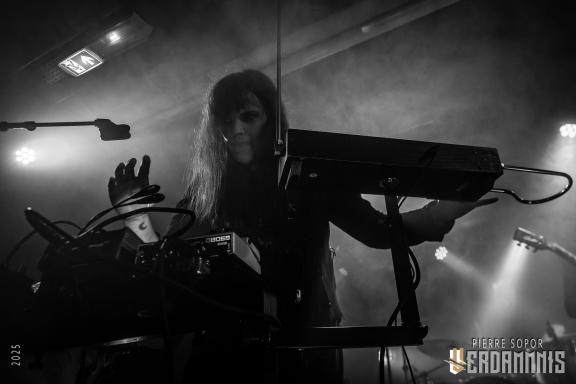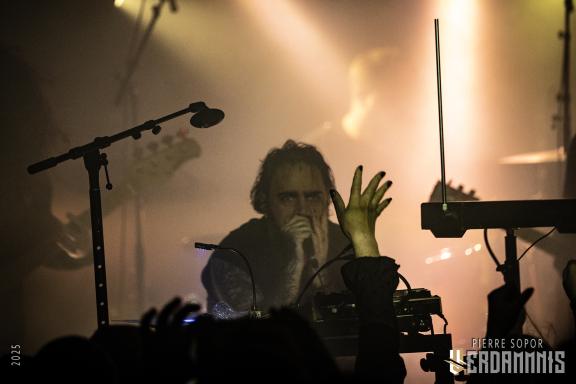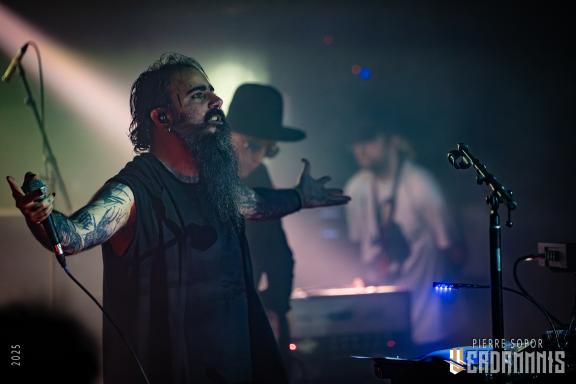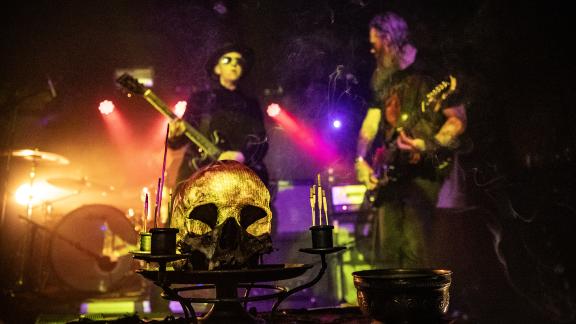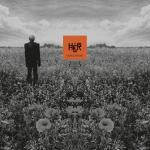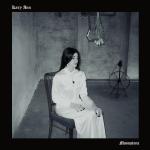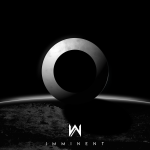Some evenings are a little more special than others... and we're not just saying that because Wolvennest concerts are already an experience in themselves! The Belgian band had to rethink their plans when (DOLCH) canceled their participation in the tour for health reasons, leading to the cancellation of several dates... Déhà immediately stepped in to replace them, a commendable response and a logical choice since the ultra-prolific artist is a loyal collaborator of Wolvennest, having taken part in their albums. With the darkwave duo Double Darkness completing the line-up, we headed to Backstage by the Mill to alternate between a mix of atmospheric black metal/doom, blasé gothic dances and a hypnotic dark rock/doom ritual... an eclectic evening of darkness organized in Paris by Garmonbozia.
Déhà
There was one last thing that made the evening truly special, as we realized when Déhà took to the stage to the cheers and applause of the audience. The artist dedicated the evening to Oscar, his friend, roommate, and musical partner in Herzog, who had passed away from cancer earlier that month. He was close to all three bands on the bill... Immediately, the applause became more subdued, less automatic.
Déhà is almost as rare on stage as he is hyperactive in the studio, to the point that it's hard to keep up with his release schedule (usually several albums a year with this project, not counting the rest). Thick smoke rises from the floor, a cry from his guts. The set then takes us on an introspective journey between dark ambient and funeral doom, something heavy and oppressive, both a wake and a cathartic ritual. When Olmo Lipani, his real name, turns his back to the audience, his higher-pitched screams don't need a microphone to resonate throughout the room. Kneeling, prostrate in the fog, he tears his guts out, partly hidden by his music stand. It's reminiscent of Amenra, but darker and more stripped down: the same way of sublimating pain, the same oppressive heaviness, the same inner storms that explode... and the tons of smoke thrown at a guy on his knees, with his back to the audience!
We remain silent, we listen. The songs are long, we're not sure if we applauded after the previous one, or even if we should, for fear that it might seem inappropriate at this wake. Do you applaud at funerals? Then, in the final moments of the set, Déhà urges us to seek out the light, even if it hurts, even if it seems strange after such a dark set. That's where his friend Oscar now is. We're blown away by what we've experienced straight at the beginning of the evening, something so visceral and powerful. “If you didn't cry, you're an asshole,” he says before leaving the stage, in a mixture of absolute sincerity and slightly boastful humor. He's right. Let's show off a little, because soon enough, we'll be skulls.
DOUBLE DARKNESS
Skulls are what we find in the middle of the stage for Double Darkness. The duo stays on the sides, as if to leave the place of honor to this macabre reminder of our vanity. The members of Double Darkness introduce themselves only as “DD,” no names. If this were power metal, they would be called Double Dragon, there would be Smaug and Spyro or Toothless and Mushu, and that would be that. But this is darkwave, this is Double Darkness, so let's call them Darkness and Darkness, who released their first album City Scars last year.
Darkness hides under her hood while Darkness shows off a little behind his dark glasses. The two begin with their eponymous track, heavy and mysterious. It brings to mind Perturbator's cold wave shift and Boy Harsher's blasé tone, but heavier and less hipster. It's thick, mysterious, slow, the two voices respond to each other and the contemporary synths extinguish the Backstage spotlights. The reverb gives the impression that ghosts are singing their tunes to us from the afterlife. Images projected onto the duo, often abstract, sometimes bring out a face and give the stage a texture that is both surreal and urban, made up of cold, hard structures, like a gothic and contemporary reinterpretation of the aesthetic dear to their compatriots Front 242.
We sway sadly, One Way Ticket picks up the pace a little. The nocturnal, urban world is lit only by the pale glow of streetlights that give off no warmth. We think of several recent darkwave projects, from Aux Animaux to Ductape or Dancing Plague: while Double Darkness shares certain things with them, their universe, rooted in a kind of distorted reality, sets them apart, as does their approach stripped-down from 80s fetishism and gothic ornamentation, fully embracing this modern night. Ultra-gothic but without the outrageous look, Double Darkness is so cool: we're goths, we're mega depressed, we don't care about looking happy to be here, we don't care about smiling, saying thank you, singing in tune, we don't care if people see us, we're going to die soon anyway and we're already dead inside.
In the studio, several members of Wolvennest contribute to the tracks. Double Darkness wasn't going to pass up the opportunity to invite guitarist Corvus Von Burtle to join them for Last Sesh. “There's a dance floor in the graveyard,” Darkness and Darkness murmur, blending sepulchral and spectral voices. Backstage by the Mill is the graveyard, we rename it Graveyard by the Mill, we are the dead, we have no joy, no motivation, no fire left. It was so cool.
WOLVENNEST
Skulls, always skulls. This time, the one on stage is surrounded by incense sticks whose scent fills the air at Graveyard by the Mill. Wolvennest takes its place... and takes up space: the stage is a little cramped for the six musicians. The band's latest album is called Procession. The name is apt. The music, heavy and hypnotic, does indeed exude something solemn and sacred, an impression reinforced by the very sober and hieratic stage presence of singer Shazzula. She draws ghostly lamentations from another world from her theremin, then the other instruments enter the scene and the ritual begins.
Their latest album was presented as the soundtrack to our own extinction. So it is our own requiem that we are witnessing. Wolvennest draws on esoteric influences from the 70s, with occasional hints of post-punk (Another Nail) and black metal... The riffs shrink us, the theremin escapes and hoots in the night. Marc DeBacker, with his glasses and hat, looks like a cowboy undertaker, somewhere between Fields of the Nephilim and Me and That Man. Michel Kirby struggles in his corner and sometimes adds to the heaviness with his voice. On the left side of the stage, bassist VaathV and Corvus show great chemistry... Their communicative stage presence contrasts with Shazzula's authoritative, impassive presence, who recites her lyrics as if casting a curse.
It's slow but catchy, the riffs are massive but it grooves. With Purple Poison, the air thickens. The vocals finally come through a little better, after a start to the concert where they seemed to be drowned out by the rest. With incense and thick smoke covering the stage, the mystical atmosphere is a success. The echoes of the oldest Incarnation, an intense and occult funeral march, plunge the concert a little further into darkness. The music falls like a condemnation, grandiose and ancestral. Its theatricality is enough; there's no need to add tons of extra stuff on stage. The uninitiated may find it all monotonous, but the fans are in a trance. Wolvennest captivates its audience, transporting them into a phantasmagorical and smoky universe.
The older tracks blend seamlessly with the newer ones. All That Black and Ritual Lovers pack a punch, fascinating pieces that fit right in with Décharné, Pas de Côté in French, or the contemplative mists of Famadihana. We would have loved to have had time to be enchanted by Accabadora. From the latest album, we would have liked to have been able to dive into the anguished depths of Hunters or lose ourselves in the radical darkness of The Last Chamber, but time is short and choices have to be made. At the end of the evening, Shazzula leaves the stage without a word and Wolvennest has a very special finale in store for us: Déhà returns to the stage and the band ends their set with La Mort. What more appropriate ending could we have imagined? The lyrics recited in the studio version are shouted out in a long conclusion to this unique, mournful, and mystical evening.
Death is omnipresent, at the end of everything: we love it when it is romanticized, mystified, and serves as a poetic backdrop in a little game we play that allows us to try to face death, the real thing, the one we inevitably love less. Let us therefore congratulate the artists and the organizer for making this beautiful and unique evening possible. It was necessary, and for once, life won the battle.

